New Era of Coordinated Attacks on Foundations of Fundamental Rights, European Report Finds
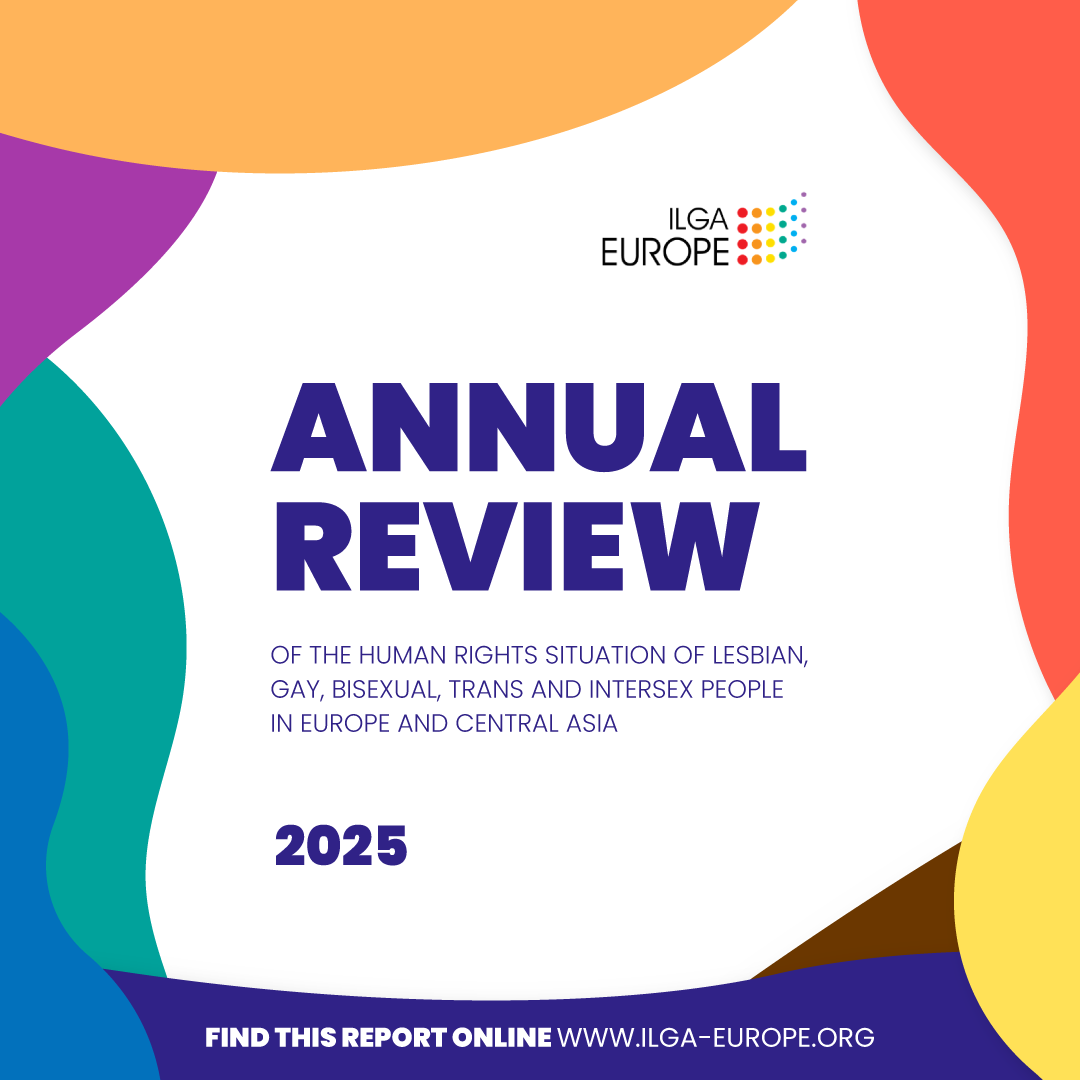
A major report published today identifies how LGBTI people are being weaponized to erode the foundations of freedom and democracy across Europe.
Released today, February 18, 2025, ILGA-Europe’s ‘Annual Review of the Human Right Situation of LGBTI People in Europe and Central Asia’ warns of a new era in which rising anti-LGBTI legislation threatens fundamental rights. Governments are fueling anti-LGBTI sentiment to push laws that restrict freedom of expression, association, and fair elections.
Governments are increasingly adopting tactics similar to Russia’s, forcing NGOs to register as ‘foreign funded’ to undermine their legitimacy, restrict funding, and stifle human rights activism. Known as ‘foreign agent’ laws, these measures are framed as protecting families and traditional values while often specifically targeting LGBTI NGOs. Last year in Bulgaria, Georgia, Hungary, Kyrgyzstan, and Montenegro, proposed foreign agent laws posed a direct threat to civil society.
Such legislation is enacted with or in the wake of so-called ‘LGBT propaganda’ laws that seek to criminalise visibility of LGBTI people, ban content, silence activists and restrict freedom of assembly, which have been either discussed, proposed or adopted in seven countries (Azerbaijan, Belarus, Bulgaria, Georgia, Kazakhstan, Romania, and Slovakia). These laws have been increasingly leveraged in education sectors, restricting or entirely preventing the inclusion of LGBTI issues in curricula and awareness-raising initiatives. In addition, attempts to introduce legislation excluding LGBTI topics from sex education were recorded in Bulgaria, Hungary, Italy, the Netherlands, Luxembourg, Norway, Romania, Russia and Slovakia.
In this context, LGBTI-phobic hate speech, sexism and misogyny are increasingly normalised, often fuelled by public figures, including political and religious leaders and state institutions. This is in turn driving an unprecedented surge in violence as hate crimes have reached record levels across the region.
The normalisation of hate is also providing justification for the blocking of healthcare for trans people. Andorra, Georgia, Hungary, Ireland, Moldova, Romania, Russia, and the UK have all put in place new barriers to care. Following the UK Cass Review, efforts to restrict trans healthcare for minors have emerged in Austria, France, Italy, Ireland, Poland, and the UK, putting trans lives further at risk.
As an increasing number of governments crack down, LGBTI people are being forced to flee—but Europe is closing its doors. Russia, Kyrgyzstan, and Turkey are intensifying persecution, and Turkmenistan is entrapping and torturing LGBTI individuals. Yet, many European countries, including Austria, Belgium, Bulgaria, Ireland and the UK, are denying asylum claims based on outdated, arbitrary assessments, with some officials rejecting applicants for not ‘seeming LGBTI enough.’
According to ILGA-Europe’s Executive Director, Chaber: “This report confirms what many of us have feared—we are entering a new era where LGBTI people have become the testing ground for laws that erode democracy itself. Across Europe and Central Asia, governments are using anti-LGBTI rhetoric to justify restrictions on free speech, civil society, and fair elections. What begins as an attack on LGBTI rights rapidly grows into a wider assault on the rights and freedoms of all individuals in society. This is not just an LGBTI issue; it is a crisis for human rights and democracy as a whole.”
ILGA-Europe’s Advocacy Director, Katrin Hugendubel added: “While governments are increasingly scapegoating LGBTI people to push restrictive laws, the courts both in the EU and across Europe are in turn upholding LGBTI human rights, with key judgements on procedures for LGBTI asylum seekers, anti-LGBTI hate speech, freedom of association and expression, legal gender recognition, and sexual and reproductive rights. But at this critical time, our leaders cannot simply leave the protection of human rights to the courts. Politicians at both the European and national levels must act decisively to counter the growing attacks on the cornerstones of democracy we are seeing. The normalisation of anti-LGBTI rhetoric is not just a threat to one community—it is now a proven direct assault on the democratic principles that underpin our societies.”
Further Information
Download a full analysis of the trends here
Read the ILGA-Europe’s Annual Review here
See up-to-date legislative developments in each country with ILGA-Europe’s Rainbow Map
The ILGA-Europe conference, the largest LGBTI conference in Europe and Central Asia, meets in Bucharest this weekend
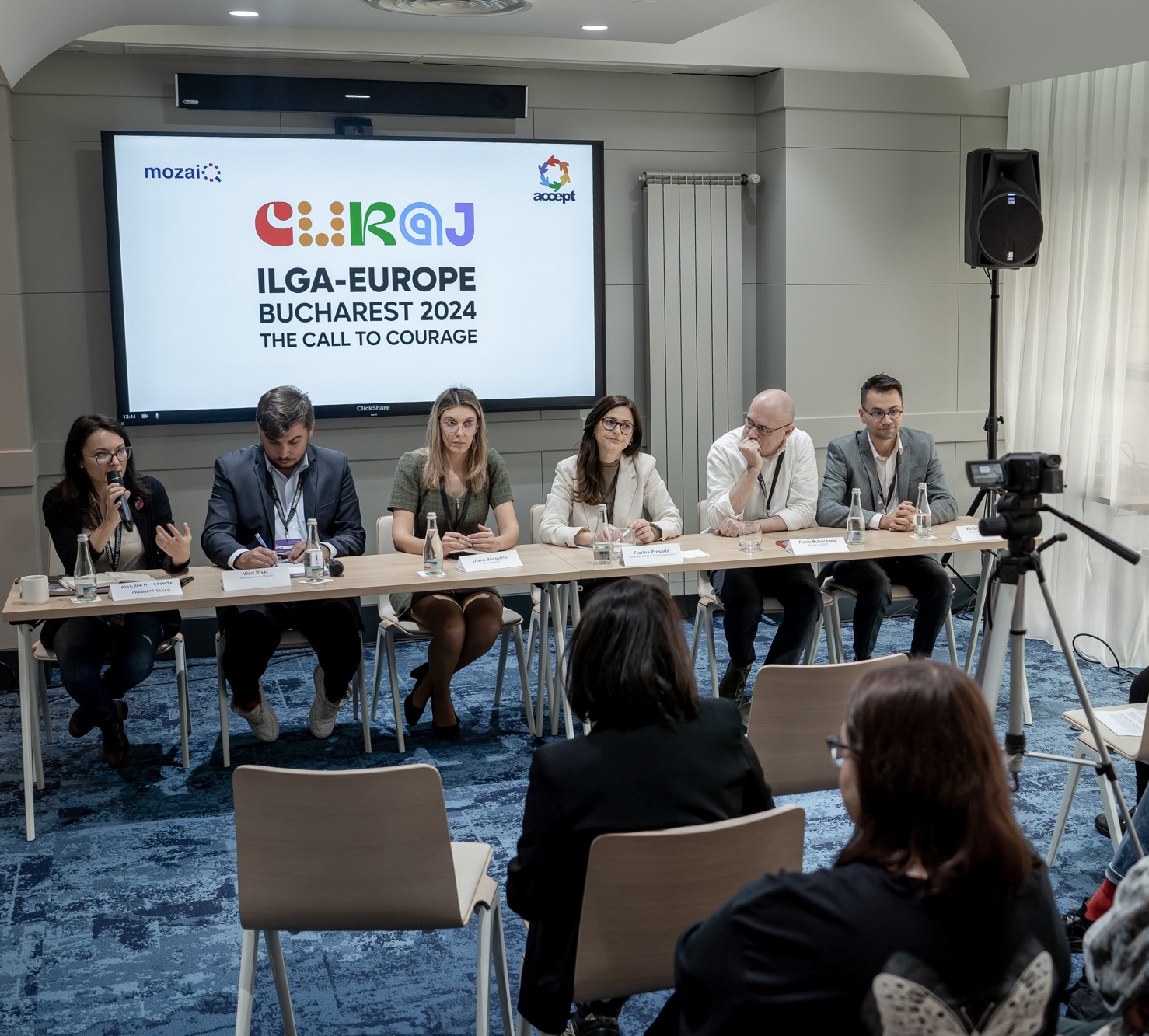
The ILGA-Europe Annual Conference, the largest LGBTI conference of its kind in Europe, has brought over 400 LGBTI activists from across Europe and Central Asia to Bucharest.
Co-organised by ILGA-Europe member organisations from Romania, Accept and MozaiQ Associations, the theme of this year’s Annual Conference is ‘The Call to Courage’, reflecting the need for constant and fearless engagement in the movement for LGBTI human rights and equality. The event aims to address issues facing the LGBTI community in Europe, so that international activists can exchange experiences and discuss topics important to the movement at a European level. It also represents a crucial opportunity to strengthen solidarity and collaboration among LGBTI organisations in the region, in the context of the rise of conservative and populist movements in several European countries.
Commenting on the choice to hold the Conference in Romania this year, ILGA-Europe’s Advocacy Director, Katrin Hugendubel said: “As Romania gears up for elections, and at a time when the rights, protections and lives of LGBTI people are more at risk now than in the last decade, we are in Bucharest for the ILGA-Europe conference over with 400 LGBTI activist participants, from 52 countries. The European Courts have made two judgements saying Romania should recognise both same-sex partnerships and gender recognition that have taken place in another EU country. It is time that Romania caught up with the majority of the European Union and implemented these judgements. Romania also needs to put in place legislation to recognise partnerships and rainbow families, so that the human rights of LGBTI people can be respected and protected, instead of being used as political scapegoats with attempted legislations to limit their human rights.”
Failures in Romania
Judgements against Romania’s at the European Court of Human Rights (ECHR) and the Court of Justice of the European Union (CJEU) are among the topics addressed during the Conference, including the need to recognise same-sex families, as well as the protection of the rights of the transgender community. These topics underline both the failures of the Romanian government in protecting fundamental rights and the urgency with which these rights violations must be remedied. These challenges are amplified by an increasingly polarised political climate, where hate speech and attempts to limit minority rights are on the rise.
In addition, the conference is being held at an essential moment for Romania, given that this year is an election year. The November-December parliamentary and presidential elections will test Romanian politicians’ commitment to democratic values and respect for fundamental rights. At a time when repressive anti-LGBTI legislation from the Russian playbook is being promoted in neighbouring countries, Romania must reaffirm its commitment to the protection of all its citizens.
According to Victor Ciobotaru, Executive Director of the Accept Association Romania: “LGBTI people have never asked for special rights. We want equal rights for ourselves and our families. Politicians have probably never done this exercise of compassion of putting themselves in the other person’s shoes, in the shoes of the person you represent, to think about what it’s like to live for 25 years with someone and not have the certainty that you can be with that person in difficult moments, such as if they have health problems, if an accident occurs, or if the other person dies. These are the pressures and fears we live with every day. Every day that goes by waiting for politicians to respect our rights, is a day when real people suffer.”
Vlad Viski, the Executive Director of MozaiQ added: “We have to put a mirror in front of the political class regarding LGBTI people in Romania. There are hateful political attitudes, which are still acceptable in the Romanian Parliament and now Romania is in the situation where it is one of the last five countries in the EU that does not recognise same-sex couples, while there are judgements on partnership rights and legal gender recognition from the EU courts that are yet to be implemented.”
According to Renate Weber, Ombudsperson for Romania: “The first thing we need, and this would be a major step forward, is a civil partnership law that applies to everyone, both same-sex couples and heterosexual couples, in a non-discriminatory manner. We need this if we want people to come to terms with change.”
Political candidates for the forthcoming Romanian parliamentary elections who attended the press conference also gave comments:
“The LGBTI community does not benefit from any kind of regulation of their rights in relation to state institutions. This is discrimination. Failure to regulate social situations invites discourses that incite discrimination, exclusion and even hatred,” said Andreea Leonte, candidate on the lists of the REPER party in the parliamentary elections.
“Politicians lack courage, but they are also ignorant,” said Diana Buzoianu, USR deputy and USR parliamentary candidate. “Not seeing the injustice in front of you is a form of huge ignorance. The biggest obstacle is their mentality, that no matter what they do, no one will hold them accountable. Those in parliament are ultra-privileged.”
“There is a need for commitment, courage and solidarity,” added Florina Presada, former Executive Director of Accept and candidate on the lists of the SENS Movement for parliament. “LGBTI people need more than civil partnership, they need more than half measures. The full right is civil marriage and everything that derives from it is needed. This means protecting the family in Romania. Let’s stop operating with half measures.
“Only through joint efforts can we build a society where every individual, regardless of their sexual orientation or gender identity, feels respected and protected. It takes courage not to let hatred and discrimination become the norm, and activists from across Europe and Central Asia gathered here are a voice of solidarity and resistance against injustice.”
Bulgaria passes anti-LGBTI propaganda law
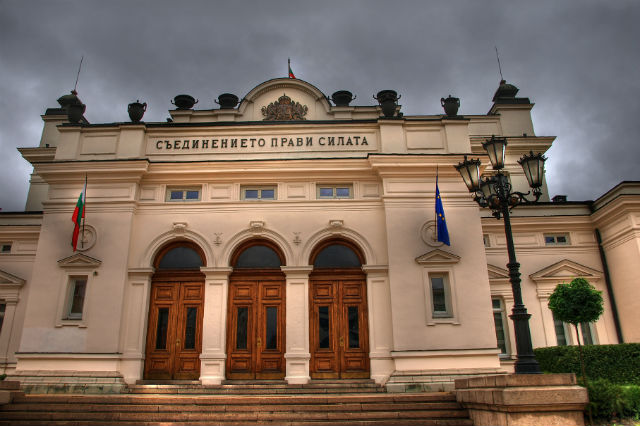
ILGA-Europe have condemned a fast-tracked law banning the portrayal of LGBTI identities in Bulgarian educational institutions, warning that it is an attack on children’s rights and a distraction to secure votes for far-right and Russia-aligned parties in forthcoming elections.
Today the Bulgarian Parliament voted with almost a full majority to adopt an anti-LGBT propaganda law which prohibits “the carrying out of propaganda, promotion and incitement in any way, directly or indirectly, of ideas and views related to non-traditional homosexual orientation and/or the determination of gender identity other than biological” in the system of pre-school and school education, by amending the Preschool and School Education Act (PSEA).
In both the reasoning behind the bill and during today’s debates it was mentioned that content “in the vicinity of” these educational establishments should also be banned. This means that any portrayal of LGBT people will be banned from schools and pre-schools, as well as any entity in the vicinity of them.
Both the first and second readings were held today, seven days after passing the Committee, in a clear fast tracking of the legislation through parliament in their last session before the summer and while most watchdogs and international institutions are on holiday.
The Revival Party drafted the law using wording based off the Russian and Hungarian anti-LGBT propaganda laws, which both countries have been promoting in Europe. The Revival Party is a member of the the Europe of Sovereign Nations group of the European Parliament, which includes MEPs who have declared interest in forming a “pacifist” and eurosceptic group to improve relations with Russia, and MEPs who were expelled from the Identity and Democracy (ID) Group shortly before the European election, due to reports of Nazi sympathising.
According to the Executive Director of ILGA-Europe, Chaber: “The proponents of the law, the Revival Party, and all those who voted in favour of the law claim that this is to protect young people, however the truth is that this is an attack on the rights of children, particularly LGBTI children.”
The aim of the law is extremely similar to the Russian anti-LGBT propaganda law adopted in 2012, and the Hungarian anti-LGBT propaganda law adopted in 2021, both of which have been deemed by various international stakeholders and institutions as incompatible with international and European human rights standards (see the Venice Commission’s opinions on the Russian[1] and Hungarian laws[2]).
The Venice Commission of the Council of Europe has repeatedly found such anti-LGBT propaganda laws to be in violation of the European Convention on Human Rights (ECHR). The more recent Venice Commission Opinion on the Hungarian anti-LGBT propaganda law found it to be incompatible with the ECHR and international human rights standards, including the law’s amendments regarding the educational sector.
It found that the law “fails to comply with the positive obligation of Hungary to ensure that the educational system provides children with objective and non-biased information on gender identity and sexual orientation and protects them from discrimination on the same grounds.”
According to Denitsa Lyubenova, Lawyer at LGBTI organisation Deystvie in Bulgaria: “The previous opinion of the Venice Commission makes it clear that such “anti-propaganda” bills put children and youth at risk by contributing to creating a threatening environment where LGBTI children can be subject to health-related risks, bullying and harassment, and they exclude LGBTI people from fully participating in a democratic society.”
A growing trend in Europe
This law follows repeated attempts in recent years by the Revival Party to table a Russia-style Foreign Agent Law, which would see civic space severely curtailed and contribute to the erosion of democratic checks and balances. In fact, this combination of Russian-style Foreign Agent laws and anti-LGBT propaganda laws is a growing trend in Europe, with Georgia most recently having adopted a Foreign Agent Law in May this year and then only five days later announcing an anti-LGBT legislative package which includes a ban on LGBT content in education, media and the arts.[3]
Says ILGA-Europe’s Executive Director, Chaber: “Today’s fast-tracking of this law through the Bulgarian parliament is a clear attempt to avoid scrutiny, and highlights the political nature of this law. Both Bulgaria and Georgia have national elections upcoming in October. LGBTI people are being used in both scenarios as scapegoats and as a distraction to secure votes for far-right and Russia-aligned political parties.”
The European Commission has highlighted, in its 2024 Rule of Law report, that the current procedure of legislative initiatives tabled by MPs in Bulgaria does not adhere to desired standards, such as allowing civil society consultation, conducting impact assessments, and assessing compliance with EU law.[4] This adopted law is a clear example of these rule of law shortcomings.
Says Chaber: “Given the extremely fast-tracked procedure for this law, its clear political aim is to scapegoat LGBTI people and legislate against their human rights. It is incompatible with Council of Europe and EU standards on law-making and non-discrimination. As such, ILGA-Europe request that the European Commission assess the law’s compatibility with EU law and call for a strong reaction from all EU Member States.”
[1] https://www.venice.coe.int/webforms/documents/default.aspx?pdffile=CDL-AD(2013)022-e
[2] https://www.venice.coe.int/webforms/documents/?pdf=CDL-AD(2021)050-e
[4] European Commission (2024), Rule of Law report, Bulgaria chapter, accessible at: https://commission.europa.eu/document/download/fd6bb85d-4aaa-4c79-88a2-8709edfb2002_en?filename=10_1_58051_coun_chap_bulgaria_en.pdf
[5] (C/2023/8627 final) https://eur-lex.europa.eu/legal-content/EN/ALL/?uri=PI_COM%3AC%282023%298627
[6] See pp 33-34.
EU Elections Candidates Across Europe Are Vowing to Support LGBTI Human Rights
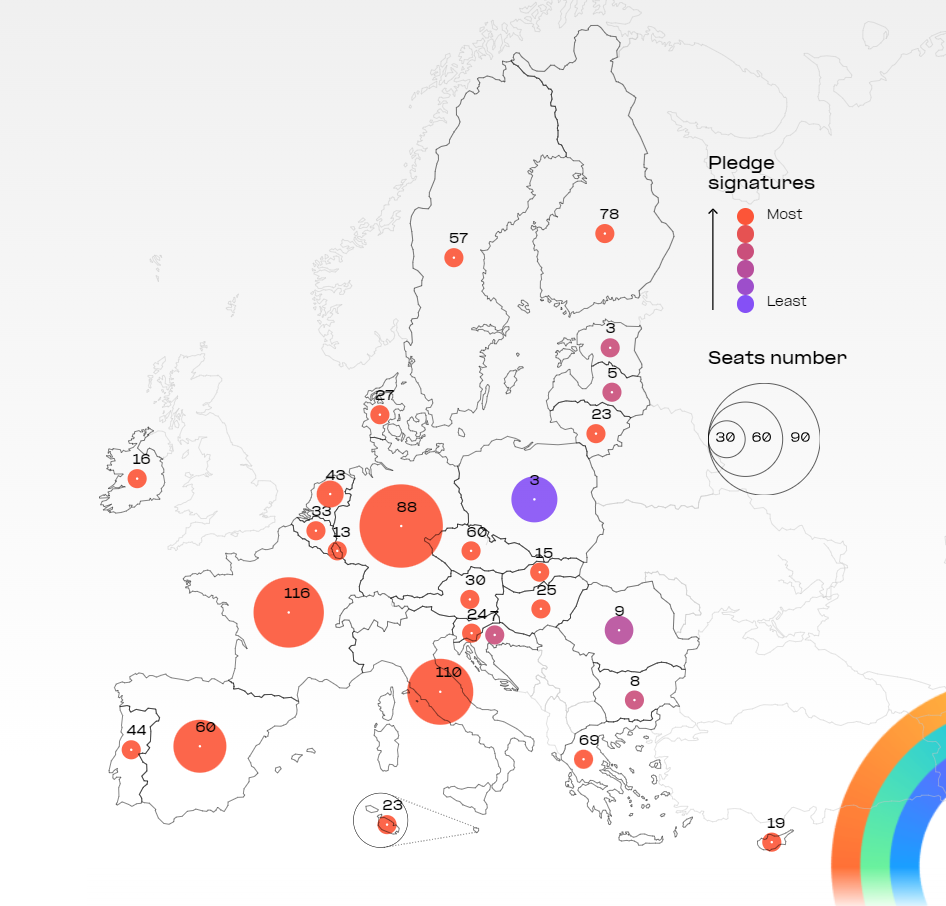
As voters get ready to go to the polls in the European Elections, over a thousand candidates across Europe have pledged to protect and advance LGBTI human rights if they are elected
Download this press release in Finnish, French, Italian, German, Portuguese and Spanish.
While authoritarian leaders across Europe continue to use the scapegoating of LGBTI people to divide and mobilise their electorates, the rising number of candidates singing up to the Come Out 4 Europe pledge proves that many have their sights set on voters who seek and support the protection and advancement of LGBTI human rights in the EU.
Now in their thousands, candidates in 27 countries have signed ILGA-Europe’s Come Out 4 Europe pledge, which asks them, if elected, to propose and advocate for EU policies and laws; actively engage on rule of law, democracy and inequality; make sure the EU uses all its powers to hold Member States accountable for violations of the human rights of LGBTI people, and act as a strong defender of LGBTI organisations and human rights defenders across Europe and beyond.
While larger countries like Germany and France lead in the numbers of signatories, following close behind are countries where LGBTI rights have not traditionally been high on the agenda, such as Italy with 110 candidates for 76 seats, Greece (69 candidates for 21 seats), Lithuania (23 candidates for 11 seats, and Finland (78 for 15 seats).
The top four European parties with candidates who have committed to LGBTI human rights are, in ascending order, Renew; The Left; S&D; and Greens/EFA.
For the full Come Out 4 Europe pledge, which also asks candidates how they intend to live up to their commitments click here.
Quote from Chaber: “The sheer numbers of candidates signing up with very real commitments to protect the human rights of LGBTI people should they be elected, along with showing how they intend to live up to those promises, shows that many politicians are standing strong amidst growing attacks on LGBTI rights, and are willing to work with us, and other LGBTI organisations and activists to counter polarisation and the scapegoating of LGBTI people in political divides. Now, it is time to go out and use your vote for those politicians.”
The candidates in countries across the EU who have pledged to protect and advance LGBTI human rights if they are elected can be found at www.comeout.eu.
About Come Out 4 Europe:
The Come Out 4 Europe campaign seeks to mobilise votes for candidates in the European Elections 2024 who will support, protect and advance LGBTI rights as part of their mandate. It does this by directing voters to candidates who have signed a detailed pledge, which includes the ways in which they will live up to their commitments if elected. Come Out 4 Europe comes from ILGA-Europe, an independent, international non-governmental umbrella organisation uniting over 700 LGBTI organisations from 54 countries across Europe and Central Asia. ILGA-Europe works for a world in which each and every LGBTI person is free, equal and safe, through resourcing and connecting communities, driving political change, and amplifying voices. Find out more here.
The current numbers of candidates per country:
Austria – 30
Belgium – 32
Bulgaria – 8
Croatia – 7
Cyprus – 19
Czechia – 60
Denmark – 27
Estonia – 3
Finland – 78
France – 116
Germany – 88
Greece – 69
Hungary – 25
Ireland – 16
Italy – 110
Latvia – 5
Lithuania – 23
Luxembourg – 13
Malta – 23
Netherlands – 43
Poland – 3
Portugal – 44
Romania – 9
Slovakia – 15
Slovenia – 24
Spain – 60
Sweden – 57
With elections looming, Rainbow Map shows Europe is not equipped against attacks from the far-right
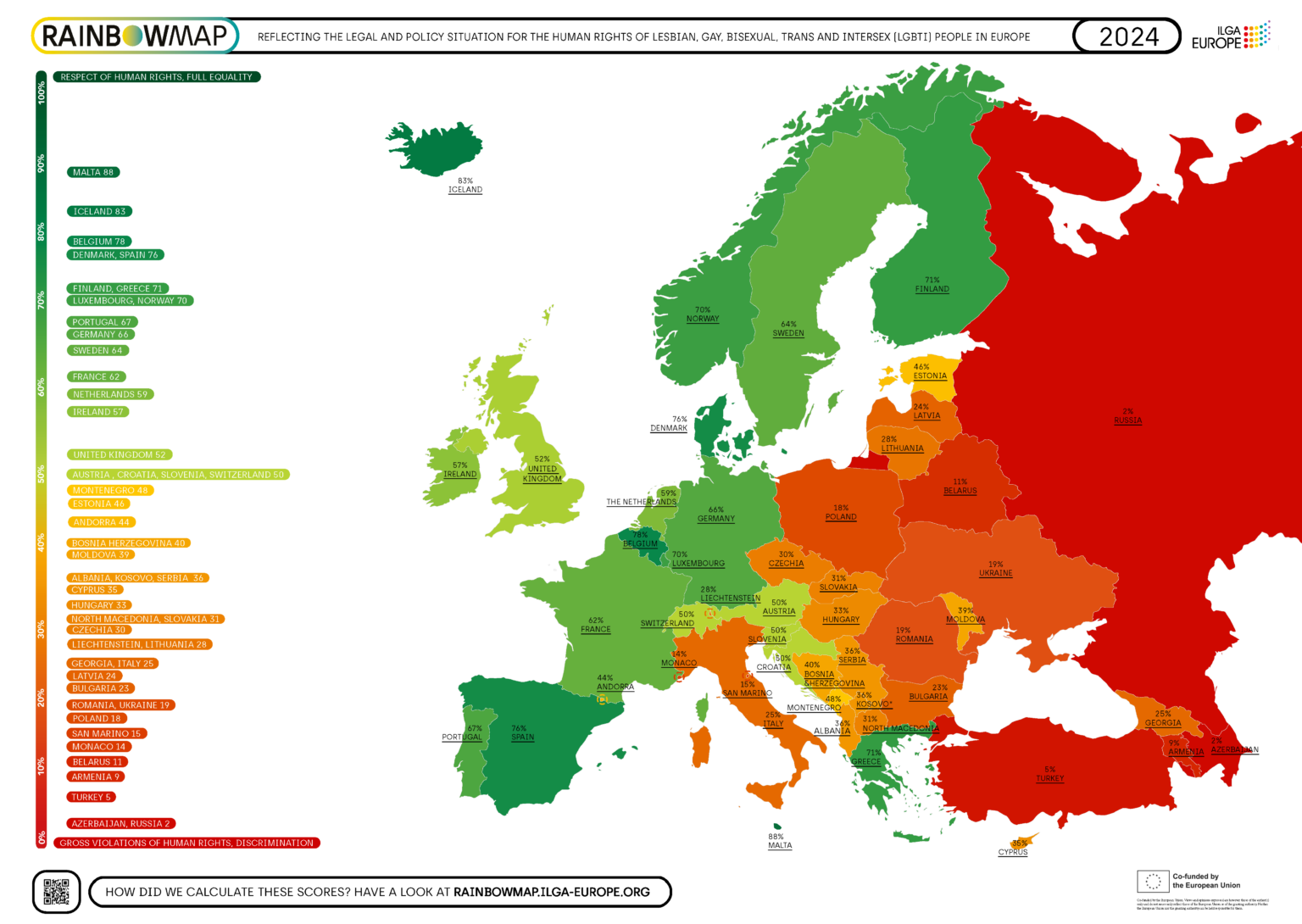
As Europe heads towards multiple elections, including the EU elections next month, LGBTI rights have become a marker for the protection of freedom and democracy amid the rise of far right forces, new Rainbow Map finds.
Published on May 15 by Europe’s leading LGBTI organisation, ILGA-Europe, the 16th annual Rainbow Map, which ranks 49 European countries on legislative developments in the arena of LGBTI human rights, shows that while authoritarian leaders across Europe continue to use the scapegoating of LGBTI people to divide and mobilise their electorates, others are conversly showing robust political will to honour commitments to advancing and protecting the human rights of LGBTI people.
At a time when some Italian regions are withdrawing parenthood rights from same-sex couples, when efforts are being made to rewrite guidelines to limit access to trans-specific healthcare in Slovakia, Croatia, France and the UK, and when we are witnessing Russia’s unprecedented move of criminalising the ‘international LGBTI movement’ as an ‘extremist organisation’, the findings of this year’s Rainbow Map make it more clear than ever that only legal protections can ensure that fundamental rights are guaranteed.
many countries stalling
The Rainbow Map is published just one day after the European Union Agency for Fundamental Rights LGBTIQ Survey III report, which finds that over two thirds of respondents encountered hate statements, and a significant increase in violence since the last survey in 2019.
According to ILGA-Europe’s Advocacy Director, Katrin Hugendubel: “Across Europe, LGBTI people are being targeted by hate speech and violence and their human rights are being actively undermined, yet we still see too many countries across the region stalling in moving legal protection forward and not renewing their commitments through national strategies and action plans. This non-action is dangerous, as without proper legislation in place to protect minorities, including LGBTI people, it will be much too easy for newly elected governments to quickly undermine human rights and democracy.”
Strong Political Will in several countries
The Rainbow Map shows some governments stepping up to the mark in the understanding of this. In a year of 30-plus elections across the region, including the EU Elections next month, the Map illustrates a strong political will to advance the protection of LGBTI human rights in several countries.
Greece, Germany, Iceland, Estonia, and Liechtenstein all made some of the biggest jumps in the Rainbow Map ranking. Both Estonia and Greece amended their laws to allow same-sex couples to marry and adopt children, Greece also filled the gaps in its anti-discrimination legislation to fully protect LGBTI people, and Liechtenstein extended adoption rights to same-sex couples. With these changes, Greece has jumped to No’6 in the ranking.
Countries are also working hard to put crime measures in place that recognise anti-LGBTI hatred as an aggravating factor. Germany, which entered the top 10 this year, prohibited hate crimes based on sexual orientation, gender identity, and sex characteristics. Other countries legislating against hate crime include Bulgaria, Iceland (which has jumped to No’2 in the ranking) and Slovenia. Bans on conversion practices, which also perpetrate violence against LGBTI people, were introduced in Belgium, Cyprus, Iceland, Norway and Portugal.
But others, such as Italy, which has dropped two places in the rankings due to stalling legislative protection for many years, show what can happen when legislation is not in place and far-right governments take power.
Backlash in Georgia and other EU Accession Countries
Most EU accession countries (Albania, Bosnia and Herzegovina, Kosovo, Moldova, Montenegro, North Macedonia, Serbia, Ukraine) are falling behind in their commitments, stalling the introduction of legislation and thus putting their citizens more and more at risk of real backlash and the undermining of fundamental rights. Turkey and Georgia, also accession candidates, are actively eroding human rights and fundamental freedoms, including efforts to pass new legislation particularly targeting LGBTI people. Georgia, one the most recent accession countries, has been cracking down on pro-EU protests against its proposed ‘foreign agents’ law, which comes directly from the Russian anti-LGBTI playbook.
According to the Executive Director of ILGA-Europe, Chaber: “The EU needs to pay close attention not only to the rise of political hate speech against LGBTI people, but also to new tools of oppression, like Russia’s criminalisation of a whole segment of the country’s population. The efforts at division and distraction from consolidated authoritarian regimes are further leaking into other European countries at a time where elections could push Europe into the hands of leaders who wish to shape a radical right, anti-democratic European Union. Europe needs stronger laws and policies to protect LGBTI people. Without these, we cannot talk about safety or about rule of law and democracy.”
About the Rainbow Map
The Rainbow Map – ILGA-Europe’s annual benchmarking tool – comprises the Rainbow Map and Index and national recommendations. ILGA-Europe have produced the Rainbow Map and Index since 2009, using it to illustrate the legal and policy situation of LGBTI people in Europe.
The Rainbow Map and Index ranks European countries on their respective legal and policy practices for LGBTI people, from 0-100%.
In order to create our country ranking, ILGA-Europe examine the laws and policies in 49 countries using 75 criteria, divided between seven thematic categories: equality and non-discrimination; family; hate crime and hate speech; legal gender recognition; intersex bodily integrity; civil society space; and asylum.
The Rainbow Map and Index presents a picture of the current policy landscape, while country-specific recommendations attempt to answer the question “what’s next?” These recommendations are intended to encourage policymakers to address the most pressing legal and policy priorities within the framework of our Rainbow Map and Index. The recommendations were gathered following an online consultation with a wide range of LGBTI organisations in the various countries. As a result, the recommendations are tailored to the needs of activists working on the ground.
This year, the Rainbow Map website has been relaunched with a new look and includes features that allow for an improved visualisation of the data, as well as a more agile and user-friendly access to the information.
Rainbow Map Executive Summary 2024
For the ninth year in a row, Malta continues to occupy the number one spot on the Rainbow Map, with a score of 88%.
With 83 points, Iceland jumped to second place with a rise of three places as a result of the new legislation banning conversion practices and ensuring the trans-specific healthcare is based on depathologisation.
Belgium also banned conversion practices and now comes third place on the ranking with a score of 78.
The three countries at the other end of the Rainbow Map scale are Russia (2%), Azerbaijan (2%), and Turkey (5%). Russia lost 7 points and dropped 3 places because of the federal legislation banning legal gender recognition and trans-specific healthcare.
Poland still sits at the end of the EU ranking with 18% points, followed by Romania (19%) and Bulgaria (23%).
Germany, Iceland, Estonia, Liechtenstein, and Greece are the countries with the biggest jumps in scores. Germany prohibited hate crimes based on sexual orientation, gender identity, and sex characteristics. While both Estonia and Greece amended their laws to allow same-sex couples to marry and adopt children, Greece also filled the gaps in their anti-discrimination legislation to fully protect LGBTI people. Liechtenstein extended adoption rights to same-sex couples.
Montenegro lost the most points (-13%), dropping 9 places because it failed to adopt a new equality action plan or introduce updated policies on asylum and hate crime.
Alongside Montenegro, governments in Spain, Slovenia, Finland, Sweden, and many other countries failed to renew their action plans. France, Malta, Scotland and Wales adopted effective and comprehensive equality action plans.
In many countries, legislative proposals that have been on the table for years are not moving forward. This includes the hate crime legislation and proposal for recognition of same-sex partnership in Ukraine, which despite endorsement by several ministries and support throughout society is still being stalled. It also includes a draft law on legal gender recognition in Czechia that would finally get rid of the sterilisation requirement. After five years of delay, the UK government still hasn’t followed its promises on banning conversion practices. And despite many court cases and recommendations from international institutions, Lithuania didn’t progress on recognition of same-sex couples.
Belarus began categorising LGBTI content as “pornography”, restricting freedom of expression of LGBTI people. Bulgaria and Greece failed to protect LGBTI public events, thus lost points in relation to civil society space.
Both in Denmark and Poland, administrative procedures were improved for minors’ access to legal gender recognition (LGR). Although Germany and Sweden adopted new regulations for LGR, the laws have not come into effect yet, so they are not reflected on the map.
In many countries, legislative processes for new LGR procedures have been stalled this year. Similarly, no country prohibited unnecessary medical interventions on intersex children.
Most European countries still don’t include sexual orientation, gender identity or sex characteristics as qualification criteria for asylum. In an overall climate of governments increasingly undermining the international right to asylum, this ongoing omission is very worrying. This year’s only progress in this area was Czechia adding SOGI in their asylum law and Ireland providing a consistent training framework for their asylum caseworkers.
EU candidates called to protect democracy and LGBTI human rights amid political hostility
Amidst a climate where political forces across Europe are attacking the rights of LGBTI people, candidates in the forthcoming European elections are being called upon to pledge to protect and advance the human rights of LGBTI people.
Today, March 6, Europe’s leading LGBTI organisation, ILGA-Europe, have launched the ‘Come out 4 Europe’ pledge, giving candidates in the lead-up to the EU elections the opportunity to show how they will support and protect the human rights of lesbian, gay, bisexual, trans and intersex (LGBTI) people as elected members of the European Parliament.
The ‘Come Out 4 Europe’ campaign arrives in the light of a new report from ILGA-Europe, charting a stark rise in anti-LGBTI speech across the EU member states, which has led to an escalation in violent protests outside schools and libraries, the targeting of Pride marches, and a further rise in attacks against LGBTI people.
ILGA-Europe are asking candidates to stand strong amidst growing attacks on LGBTI rights, and work with LGBTI organisations and activists to counter polarisation and the scapegoating of LGBTI people in political divides.
According to ILGA-Europe’s Advocacy Director, Katrin Hugendubel: “The public discourse is becoming more polarised and violent, and as a result the LGBTI community has experienced the highest and most severe violence across Europe in decades. The very core values and standards upon which the EU was founded – respect for human dignity and human rights, freedom, democracy, equality and the rule of law – are being called into question and human rights, and in particular the human rights of LGBTI people, are facing a strong challenge from far-right forces.
“In the last five years, we have seen political determination to advance the fundamental rights of LGBTI rights paying off across the EU, with the moves by certain member states to limit the rights of LGBTI people finally being addressed by all EU institutions, including supportive member states.
“But at the same time, LGBTI people’s rights and humanity are increasingly being exploited to polarise society, undermine democracy, the rule of law and human rights.”
The Come Out 4 Europe pledge, which can be signed at a dedicated website, comeout.eu, will give candidates the opportunity to show how they will work to protect and advance LGBTI human rights in the coming term.
Says ILGA-Europe’s Executive Director, Chaber, “The protection of the human rights of LGBTI people is deeply interconnected with democracy and the protection of human rights in our societies in general. That’s why it is of grave importance that in the next European Parliament 2024-2029, we have a strong mandate for the Parliament and the Commission to protect and advance LGBTI equality.
“As we witness the rise of political forces that question basic fundamental rights and freedoms, it is a crucial time for the EU to hold fast to the core values upon which it was founded.”
Alarming surge in transphobic speech across Europe sparks concern for EU elections
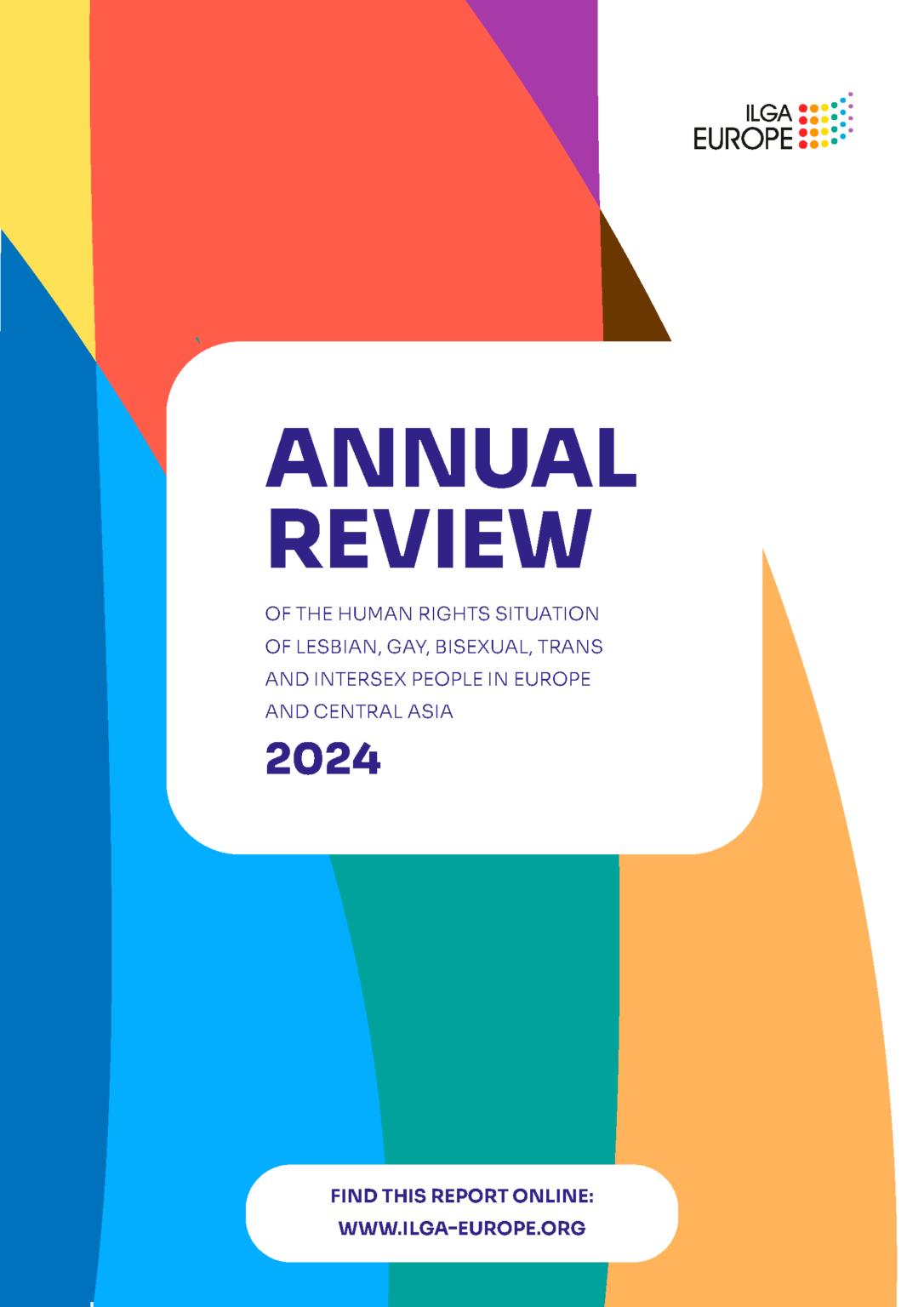
Ahead of the EU Elections next June, a new report shows a stark rise in anti-LGBTI, and in particular, transphobic statements from politicians across Europe.
Published today by ILGA-Europe, the 13th Annual Review of the Human Rights Situation of LGBTI People in Europe and Central Asia alarmingly reports hate speech from politicians in 32 European countries over the course of last year, 19 of them member states of the EU.
There has been a clear accumulation of hate speech against the lesbian, gay, bisexual, trans and intersex (LGBTI) community from officials across Europe, much of it targeting trans people, in countries including EU member states Austria, Bulgaria, Croatia, Cyprus, Czechia, Denmark, Germany, Greece, Hungary, Ireland, Italy, Latvia, Luxembourg, the Netherlands, Portugal, Romania, Slovakia, Spain, and Sweden.
The vast majority of anti-trans statements instrumentalise children, using scare tactics to create opposition to trans minors’ access to healthcare and restrictions on education. This is a broader trend we see in the use of children, with politicians across Europe claiming that limiting access to information about LGBTI people prevents harm to minors.
The report clearly shows that demonising from politicians combined with attempts to introduce legislation is impacting suicide rates and mental health, especially for young LGBTI people, and an escalation in violent protests outside schools and libraries, making young people unsafe.
This fear mongering has directly led to a further rise in attacks. Of the 54 countries reporting in the Review, only six of them reported no hate crime in 2023. In the other 48 countries, much of the reported verbal and physical violence targeted trans people. Only one EU member state reported no hate crime.
Says Katrin Hugendubel, Advocacy Director with ILGA-Europe: “It is in this climate that the European Parliament elections will take place next June. The public discourse is becoming more polarised and violent, particularly against trans people, and the LGBTI community has experienced the highest and most severe violence across Europe in decades.
“The very core values and standards upon which the EU was founded – respect for human dignity and human rights, freedom, democracy, equality and the rule of law – are being called into question, and human rights, and in particular the human rights of LGBTI people, are facing a strong challenge from far-right forces. LGBTI people’s rights and humanity are increasingly being exploited to divide societies, undermine democracy, the rule of law and human rights.”
Next week, ILGA-Europe will launch their Come Out 4 Europe campaign, which will give candidates for the European Parliament an opportunity to show how they will support and protect the rights of LGBTI people as elected members of the European Parliament.
Says Executive Director of ILGA-Europe, Chaber: “LGBTI rights are under attack, and children are being harmed in the process. As we witness the rise of political forces that question basic fundamental rights and freedom, the elections next June will be a pivotal moment for the EU, and for LGBTI people. In light of the findings of the 2024 Annual Review, our ‘Come Out 4 Europe’ campaign will call for clear political commitments on safeguarding human rights, democracy and freedom from candidates for the European Parliament.”
Giving hope comes with responsibility to us, say activists from new EU enlargement countries
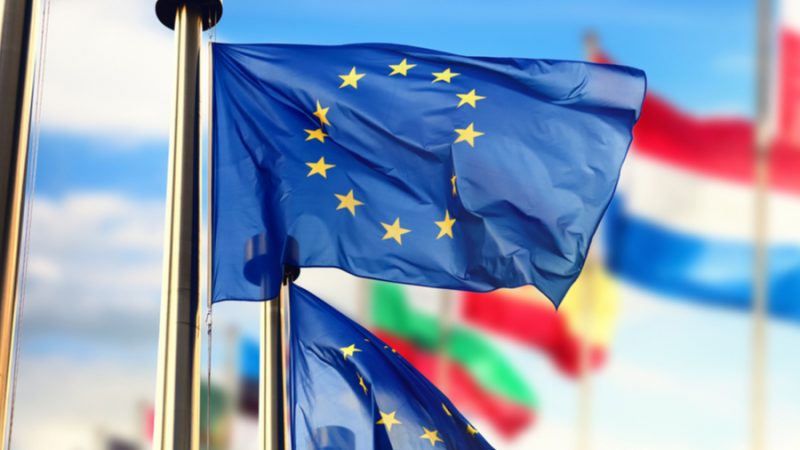
LGBTI activists from new EU enlargement countries, Ukraine, Moldova and Georgia have gathered in Brussels to call on EU representatives to live up to the promise that comes with the accession process
Today, LGBTI activists from Ukraine, Moldova and Georgia met with EU representatives in Brussels to explain serious challenges facing lesbian, gay, bisexual, transgender and intersex (LGBTI) people in their countries, and urge European institutions and Member States to live up to the hope they have given in granting all three countries prospects of becoming members of the EU.
In the wake of Russia’s invasion of Ukraine, the EU has made enlargement a priority in the eastern neighbourhood region, recently opening the path for Ukraine, Moldova and Georgia to join the EU. Ukraine and Moldova were granted candidate status by the EU Council in June 2022, and just last month the European Commission advised that Georgia should also receive candidate status at the upcoming December Council.
The prospect of joining the EU is an important motivation for governments to make reforms on advancement of rule of law and protection of fundamental rights. It is especially important in this context that the EU insists that the protection of LGBTI people’s human rights are a core part of those requirements, as governments are often falling behind the requirements. Recommendations from the EU regarding the human rights of LGBTI people are key tools supporting LGBTI organisations to engage with their governments and hold them accountable to the commitments made.
In all three countries hate crime and hate speech against LGBTI people remains a serious issue. While both Moldova and Georgia have legislation protecting against hate crime on the grounds of sexual orientation and gender identity, hate crimes are consistently not registered and prosecuted. Ukraine still needs to adopt such legislation, which is currently being debated in parliament. Despite the international obligations of these countries to provide a legal framework for the recognition of same-sex couples, none of them have adopted such legislation. The inequality this creates is particularly highlighted in Ukraine at this time, where the lack of rights of same-sex partners of soldiers wounded or killed are laid bare. International standards as regards legal gender recognition are that the procedure should be quick, transparent and accessible without abusive requirements. Currently all three countries fail to live up to this for different reasons.
Says Rina Rybalko from Gender Stream, Ukraine: “We believe that Ukraine being an EU candidate country shows bilateral willingness to cooperate and integrate, especially in terms of common values, human rights standards and opportunities. This is an important step towards strengthening democratic values and supporting civil society in Ukraine, where freedom, diversity and human rights are a priority.”
Leo Zbancă from GENDERDOC-M in Moldova says: ”The LGBTI community in Moldova faces risks due to growing anti-LGBTI narratives promoted by pro-Russian forces. We see Moldova’s move to join the EU as vital for protecting LGBTI rights and ensuring the dignity and safety of the community.”
According to Mariam Kvaratskhelia from Tbilisi Pride: “Georgia should be granted candidate status and should move further on the EU integration path without sacrificing LGBTI rights and equality, which is unfortunately what the government is currently doing.”
The accession process comes with hope in candidate countries that the prospect of EU membership will help secure a better life for LGBTI people through the implementation of EU law and standards. However, the road to EU accession can be long, and hope and ambition can turn into disillusionment and disengagement if reforms are not seen through and the efforts of people and governments are not supported and awarded by the EU.
According to Executive Co-director at ERA, Danijel Kalezić from Montenegro, which became a candidate country in 2010: “In the last 15 years in the Western Balkans, we saw how the EU enlargement process can highly contribute to the legal protection and advancement of human rights for LGBTI communities. Unfortunately, we have also seen how a lack of direct and visible political support from the EU to grassroots movements in crucial moments can result in providing a space for anti-democratic movements to stop progress achieved and push the backsliding that is currently ongoing in our region.”
The meetings between activists and EU representatives in Brussels this week were facilitated by ILGA-Europe, the largest umbrella organisation for the LGBTI movement in Europe. According to ILGA-Europe’s Advocacy Director, Katrin Hugendubel, “These meetings are essential because we need to ensure that all EU institutions engaged in the enlargement process understand what is at stake – the huge potential to work for better respect of LGBTI people’s human rights through the process, but also the big risk of backlash in case the EU is not following through the accession promises.
“We see in the Western Balkans after years of active engagement on advancing human rights and fulfilling accession conditions, people are now disillusioned and the influence and leverage of the EU is quickly diminishing. Tensions in the region are high and the influence of other global forces is very real and worrying. In Georgia, Moldova and Ukraine, people want to move towards the EU and democratic reforms are undertaken to do so. The EU needs to support these efforts and stand clear on its promise of accession.”
Slovenia about to make a crucial step towards equality for LGBTIQ+ people
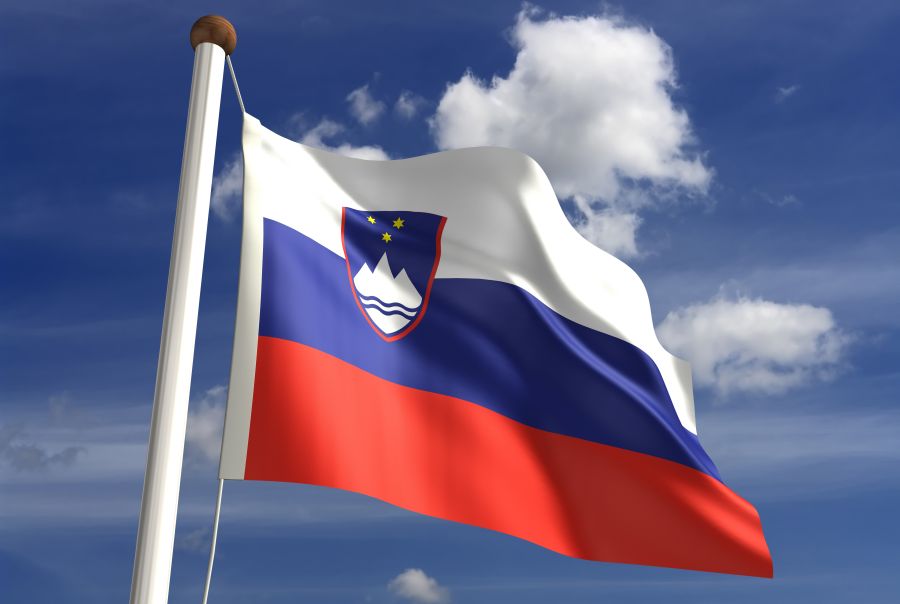
Today at a conference in Ljubljana, organised by Europe’s leading LGBTI organisation, ILGA-Europe, Slovenia’s State Secretary at the Ministry of Labour, Dan Juvan, committed to the next steps in preparing the National Strategy for the Equality of LGBTIQ+ Persons.
Today, October 27, marks a significant step forward in the journey toward equality and inclusion for the LGBTIQ+ community in Slovenia.
At a press conference during the ILGA-Europe Annual Conference in Ljubljana, which brings together hundreds of LGBTI activists from 54 countries in Europe and Central Asia, Slovenia’s State Secretary at the Ministry of Labour, Dan Juvan (MDDSZEM), further committed to the preparation and publication of the country’s first national strategy for LGBTIQ+ persons.
“Homophobic and transphobic violence exists and remains; individuals do not feel safe. That is why I am here, representing the ministry and the Levica party, to commit ourselves to addressing this issue. In the end, it is crucial that we discuss specific policies and measures to identify problems and find solutions,” State Secretary Juvan said.
This further commitment comes after the Ministry of Labour, Family, Social Affairs, and Equal Opportunities was directed by the Parliamentary Commission for Petitions, Human Rights, and Equal Opportunities last July to prepare and adopt the National Strategy for the Equality of LGBTIQ+ Persons in Slovenia in 2024.
Slovenia has made progress in safeguarding LGBTI rights, but challenges persist, particularly in areas concerning legal protection, education, healthcare, and overall social security. The urgent need for a comprehensive National Strategy for the Equality of LGBTIQ+ Persons in Slovenia is underscored by the rise in anti-LGBTIQ+ rhetoric and physical violence against LGBTIQ+ people in the country.
Over the next 14 months, the Slovenian government has committed to engaging in extensive consultations with civil society representatives and relevant institutions across various sectors. These consultations will form the foundation of our National LGBTIQ+ strategy and action plan, ensuring that it is effective and reflective of the diverse needs of the community.
Also in attendance at the press conference was Head of the Slovenian Equality Body, Miha Lobnik.
“In Slovenia, we have committed to implementing systematic anti-discrimination policies,” Lobnik said. “However, we lack a central focal point that systematically addresses minority issues, aligning with both national and EU commissions’ expectations.
“The government must take responsibility for systematically and effectively addressing minority concerns. Today’s discussion was a chance to focus on this area. I have called on governments twice before, and now this government faces the challenge of actually following through. A clear plan and concrete steps are crucial.
According to Katja Štefanec of Ljubljana Pride Association: “We recognise the crucial roles of both our Ministry of Education and Ministry of Labour in this process and are actively seeking cross-sectoral cooperation with various stakeholders, as we aim to enhance the impact of the strategy across diverse areas of influence and change-making efforts.
“We look ahead to 2024 with big expectations and will work closely with those responsible for the creation of a create a strategy that will enhance the protection of LGBTIQ people’s human rights in Slovenia and create a more inclusive, accepting society for all.”
ILGA-Europe’s Advocacy Director, Katrin Hugendubel added: “Over the past few years, we have seen a stark rise in the levels and severity of anti-LGBTI hate and violence across Europe. In this context and at this moment in time, we very much welcome the political commitment of the Slovenian government to develop a national action plan to tackle LGBTIQ+ discrimination by the end of 2024. We echo the call of national LGBTIQ+ organisations that they are involved in the development of the plan over the next 12 months. Their close involvement is essential, as they know the realities of the needs of the community this plan will address.”
Trans and intersex rights at the forefront of positive change for LGBTI people in Europe, Rainbow Map finds
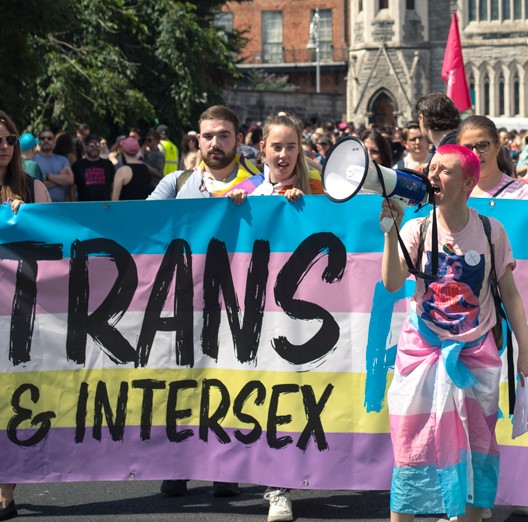
Despite intense anti-LGBTI attacks in several countries, equality is still advancing across Europe, ILGA-Europe’s annual Rainbow Map and Index shows.
The latest Rainbow Map and Index from Europe’s leading LGBTI organisation, ILGA-Europe, finds that while the public discourse is becoming more polarised and violent, particularly against trans people, political determination to advance LGBTI rights is paying off. The largest gains on the map are for countries that introduced legal gender recognition (LGR) using a self-determination model.
Published on Thursday, May 11, 2023 at the IDAHOT+ Forum in Iceland, ILGA-Europe’s annual Rainbow Europe Map and Index, ranking the legal and policy situation of LGBTI people in 49 European countries, finds that over the past 12 months bans on intersex genital mutilation (IGM) are also bringing countries up in the ranking. Spain jumped six places to number four with its introduction of LGR with self-determination, alongside a ban on IGM, while Finland entered the top ten, again up six places, again with LGR based on self-determination. Greece has also moved up four places with its ban on IGM.
Gender identity and sex characteristics are included in anti-discrimination and/or hate crime legislation, moving Belgium, Iceland and Moldova up the chart alongside Spain.
While the advancement of legislation recognising gender identity marks a major shift forward this year, there is more positive movement on the Rainbow Map and Index, notably:
- Moldova has jumped 14 places because sexual orientation and gender identity have been positively included in legislation covering employment, education, provision of goods and services, health, hate crime and hate speech.
- Slovenia and Switzerland switched positions. Both countries introduced same-sex marriage and joint adoption. Switzerland also allows medically assisted insemination for couples. Croatia too moved up one spot with its introduction of adoption for same-sex couples.
According to ILGA-Europe’s Executive Director, Evelyne Paradis: “As powerfully evidenced in this year’s Rainbow Map, the rise of anti-LGBTI rhetoric from anti-democratic forces, particularly instrumentalising false anti-trans narratives, is being fought back by politicians in Europe who have the courage to make a stand for the fundamental human rights and equality of every citizen. The map highlights the clear fact that progress for LGBTI people is still possible, and more important than ever, with the need for more leaders to push back on attacks on democracy for all by pushing forward. We commend those politicians who have taken the stance that needs to be taken for the good of everyone in our society, and we encourage more to step up to the plate as across Europe democracy and human rights are under threat from the far-right.”
Katrin Hugendubel, Advocacy Director at ILGA-Europe adds: “Governments, but also other political actors and institutions can and have been making a positive difference this year. A lot of progress relies on the Courts, for instance, at local, national and European level. Poland remains the country in the EU with the lowest ranking at 43rd place, but the country gained points in the index this year because of the courts ensuring that no surgical interventions are needed for legal gender recognition and the equality body extending its work to include intersex people. In a very hostile global climate, we are seeing different actors coming together, and weighing in more actively for LGBTI rights, which is crucial to counter the pushback.”
That pushback can also be seen in the challenge to freedom of assembly amid the rise of anti-democratic forces. Markedly, Serbia, which hosted a seriously compromised EuroPride march after last-minute attempts by the Serbian President and Minister of the Interior to ban the event, went down three places, while Turkey remains almost at the very bottom of the ranking after another year of crack-downs on Pride gatherings, showing that in 2023 the basic right to gather in a public space still cannot be taken for granted.
Released every May since 2009, marking International Day Against Homophobia, Transphobia, Biphobia, and Intersexphobia (IDAHOBIT), the ILGA-Europe Rainbow Map ranks all 49 European countries on a scale between 0% (gross violations of human rights, discrimination) and 100% (respect of human rights, full equality).
Executive summary 2023
Rainbow Europe – ILGA-Europe’s annual benchmarking tool – comprises the Rainbow Map and Index and national recommendations. ILGA-Europe have produced the Rainbow Map and Index since 2009, using it to illustrate the legal and policy situation of LGBTI people in Europe.
The Rainbow Map and Index ranks 49 European countries on their respective legal and policy practices for LGBTI people, from 0-100%.
In order to create our country ranking, ILGA-Europe examine the laws and policies in 49 countries using 74 criteria, divided between seven thematic categories: equality and non-discrimination; family; hate crime and hate speech; legal gender recognition; intersex bodily integrity; civil society space; and asylum. More information on the list of criteria and their weight on the total score can be found at www.rainbow-europe.org/about
Policymakers, researchers and journalists are able to go ‘behind’ the points and see the original information sources that we base our Map and Index ranking on. This additional layer of information is available through our updated Rainbow Europe web module, www.rainbow-europe.org.
The Rainbow Map and Index presents a picture of what the policy landscape is like currently, while our country-specific recommendations attempt to answer the question “what’s next?” These recommendations are intended to encourage policymakers to address the most pressing legal and policy priorities within the framework of our Rainbow Map and Index.
The recommendations were gathered following an online consultation with a wide range of LGBTI organisations in the various countries. As a result, the recommendations are tailored to the needs of activists working on the ground.
- For the eighth year in a row, Malta continues to occupy the number one spot on the Rainbow Europe Map, with a score of 89%.
- With 76 points, Belgium now occupies the second place with a rise of four points due to the inclusion of gender identity and sex characteristics as aggravating factors in the country’s penal code.
- Denmark comes third place with a score of 76 with the rise of two points due to its new equality action plan, which includes specific measures on sexual orientation and gender identity but falls short of inclusion of projects on sex characteristics.
- The three countries at the other end of the Rainbow Europe scale are Azerbaijan (2%), Turkey (4%), and Armenia (9%), exactly the same as the last three years. Among them, only Armenia increased an index point after revoking its ban on blood donations from men who have sex with men.
- Spain, Iceland, Finland, Moldova, Switzerland, and Croatia are the countries with the biggest jump in scores. Spain introduced a comprehensive law that regulates legal gender recognition (LGR) based on self-determination, banned genital mutilations on intersex minors, prohibited so-called “conversion” practices and outlawed discrimination based on sexual orientation, gender identity, and sex characteristics.
- Iceland adopted an equality action plan, included gender identity and sex characteristics in their equality law, and added sex characteristics protection in the penal code. Moldova also amended its equality law and penal code to include sexual orientation and gender identity.
- Finland adopted its Trans Law which regulates LGR based on self-determination.
- Switzerland’s legislation on marriage equality came into effect, which also gave the right to joint adoption and medically assisted insemination for same-sex couples. In Croatia, same-sex couples can now apply for joint adoption and second-parent adoption after a court decision.
For further comment, contact: Ana Muñoz Padrós, ILGA-Europe: ana@ilga-europe.org, +32 493 35 60 55
Romanian transgender man’s landmark case requesting that Romania acknowledges his UK gender recognition referred to the Court of Justice of the European Union
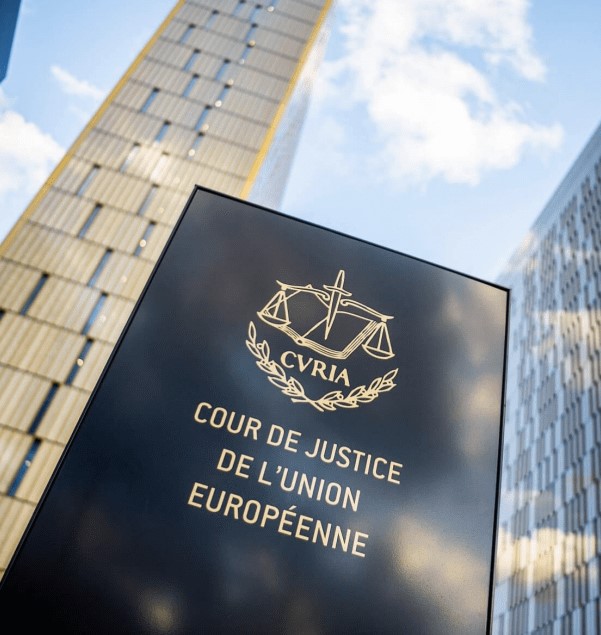
Arian Mirzarafie-Ahi, a transgender man with Romanian and British citizenship, has filed a first-of-its-kind lawsuit in Romania against Romanian authorities over their refusal to recognize his new male name and gender identity acquired in the United Kingdom (while still treated as an EU Member State). The lawsuit, which raised fundamental questions under EU law, has now been referred to the Court of Justice of the European Union (CJEU) in Luxembourg.
ACCEPT Romania, a leading Romanian NGO for LGBTQ+ rights, is helping Arian bring this landmark legal claim before the CJEU to have his new gender identity acknowledged in Romania, in accordance with his free movement and citizenship rights.
Arian began the legal process to change his gender identity markers and name in 2016. He was ultimately granted a gender recognition certificate by the UK authorities in 2020, during the Brexit transition period (when the UK was still treated as an EU Member State).
Romania now refuses to acknowledge the name and gender recognition that Arian received in the UK. Instead, it is demanding that Arian undergo Romania’s own gender recognition procedure, which has already been found to violate the European Convention on Human Rights. As a result, Arian now finds himself with two different identities across two countries, which has impacted his well being, his freedom of movement, and his EU citizenship rights.
This situation is humiliating and deeply affects Arian’s right to dignity under the Universal Declaration of Human Rights and the European Convention on Human Rights. Arian’s ability to travel freely in the EU, like any EU citizen, has been unjustifiably restricted, including his ability to visit family members in Romania, because his Romanian passport displays the wrong identity.
Arian’s case is the first of its kind to reach the European Courts. He hopes the CJEU will side with him and rule that the Romanian authorities should acknowledge his UK gender recognition and issue him new identity documents with the correct name and gender, without subjecting him to the full Romanian gender recognition procedure.
This case could set a precedent for other transgender people whose gender recognition in one Member State is not being acknowledged elsewhere in the EU, harming their ability to travel freely, reside, work or study across the EU, or even to vote.
The Court will also have the opportunity to confirm that the rights that EU citizens lawfully acquired in the UK when it was still treated as a Member State, such as Arian’s gender change, are portable when those citizens wish to exercise their free movement rights.
Arian and ACCEPT are represented by human rights lawyer Iustina Ionescu and assisted by leading international law firm White & Case on a pro-bono basis.
The facts of this case are as follows.
Background to the case
Arian was born in Romania and migrated to the UK in 2008, and later gained dual citizenship. He started the medical and legal transition in the UK in 2016 at the age of 24, and obtained a UK gender recognition certificate in June 2020, when the UK was still treated as an EU member state.
Arian attempted to register his name and gender change with the Romanian authorities in 2021, but his request was denied. Instead, the Romanian authorities demanded that Arian undergo the full Romanian gender recognition procedure before the national courts. That procedure has already been found to be in violation of human rights by the European Court of Human Rights (X and Y v Romania).
Arian then filed lawsuits in the Romanian national court against the Directorate for the Persons’ Records in Cluj, Romania; against the Civil Status Service, the Directorate for the Persons’ Records and the Administration of Databases and against Cluj Municipality represented by Emil Boc, over their refusal to change his identity documents through a simple administrative procedure.
Through this legal action, Arian is requesting that the national courts oblige the Romanian authorities to change his gender and first name, as well as to issue a new birth certificate.
Before Brexit, Arian could have travelled based on his British passport that reflects his gender identity. However, since Brexit, he can exercise his EU citizen rights only through his Romanian identity documents, which do not reflect his gender identity.
Alongside this breach of Arian’s fundamental rights, especially his right to free movement and residence in the EU, this disparity between his Romanian and British documents exposes him to humiliation and discrimination.
Arian has to travel to the EU with a Romanian passport that reflects neither his gender identity nor his appearance, or must travel on his UK passport as a non-EU citizen.
Considering that Arian’s case raises new issues of principle requiring the interpretation of EU law, in particular in relation to free movement rights and EU citizenship, the Romanian court has decided to refer the case to the European Court of Justice for a preliminary ruling. After hearing the parties, both in writing and orally, the Court of Justice will render a judgement that will be binding on the Romanian courts and throughout the EU.
Quotes
Arian said: “My entry into Romania’s territory, the country where I was born and where I have family members that I want to visit, depends on a set of identity documents that do not reflect who I am.
Due to the Romanian State’s refusal to recognise my gender identity and issue updated documents, I have already been a victim of discrimination at Romanian airports.
“All that I want is to be respected as a Romanian and European citizen and to have my Romanian identity documents updated, just as my UK documents were when I transitioned. I want to be able to enjoy all my rights, but especially my right to dignity.”
His lawyer, Iustina Ionescu, said: “The Romanian state once again violates European law and disregards the efforts made by a Romanian citizen to obtain the recognition of his gender identity in another EU Member State.
“For over a year and a half, the Romanian civil status authorities have sent Arian on a fool’s errand – they have forced him to once again go through a procedure that is entirely random in Romania, and that has already been declared by the ECtHR as violating human rights, and that does not guarantee him a solution of the situation.
“Before being European citizens, we are Romanian citizens, and the state should do its duty towards all its citizens. Fortunately, we can turn to European justice to ensure that we receive equal treatment without discrimination. The European Court of Justice has ruled many times that EU member states should refrain from taking decisions that restrict free movement and the rights of EU citizenship, as Romania did in this case.”
Florina Presadă, executive director of ACCEPT, commented: „ACCEPT Association has been working for years to put an end to the discrimination and abuse that the Romanian state subjects transgender persons in Romania by not providing a legal gender recognition procedure and all services required so that transgender persons can exercise their right to self-determination.
We have been providing legal counselling, psychological support and guidance in transition for years for transgender Romanian citizens, and we have also supported strategic litigation cases in order to show, beyond any doubt, that the rights of transgender persons in Romania are being violated. Our goal is to put an end to the current laws, policies and practices leading to the discrimination of transgender persons.
We stand by Arian, as we stand by every transgender person in Romania and in any other EU member state that does not recognize these persons’ rights to self-determination and dignity. We hope this ruling will show that European rights are for everyone, regardless of gender identity or expression.”
Patrick Brăila, trans activist, declares: “Among the Romanians who left for other European countries for a better life, there are also transgender Romanians who work and live in these states, where they managed to obtain citizenship and which became their adoptive countries. One of them is Arian, a Romanian and British citizen, whom the Romanian state humiliated and wronged when it did not recognize his identity and put him in abusive and intrusive situations. We trust that the CJEU will give him justice, thus restoring the dignity of both him and other trans people who know that their rights as European citizens can no longer be violated.”
“To paraphrase Ursula von der Leyen, if you are trans in one member State, you are trans in all member States. This needs to be settled once and for all,” comments Lenny Emson, TGEU Executive Director. “Having to go through the ordeal of having your gender identity vetted several times is unfair and puts trans people at a clear disadvantage when compared to others living in the EU. Romania, in particular, has no quick, transparent, and accessible legal gender recognition procedures, as confirmed by the European Court of Human Rights. We are proud of Arian for claiming his right to enjoy his EU right to freedom of movement.”
Katrin Hugendubel, Advocacy Director at ILGA-Europe added: “This case is just one example of what trans people in the EU have to go through when their gender recognition from a Member State is not recognised in another, forcing them to undergo the full legal recognition procedure again. This is particularly difficult and troubling in those countries that lack an LGR procedure in conformity with international human rights law standards. This judgment from the CJEU will establish a clear obligation to recognise gender recognition from one Member State in another. It will rightfully enable trans people to move freely across the EU, and to enjoy EU citizenship rights on equal footing with everyone else.”
For further information and interviews, please contact Diana Dragomir, Head of communication & PR ACCEPT Romania at diana@acceptromania.ro or Florina Presadă, Executive Director of ACCEPT Romania at florina@acceptromania.ro.
Deadliest Rise in Anti-LGBTI Violence in Over a Decade, our annual Report Shows

12 years into annually reporting on the human rights situation of LGBTI people, Europe’s leading LGBTI equality organisation finds that pervasive hate speech across the region has led to life or death consequences.
Launched today in Brussels, ILGA-Europe’s Annual Review of the Human Rights Situation of LGBTI People in Europe and Central Asia finds that 2022 was the most violent year for LGBTI people across the region in the past decade, both through planned, ferocious attacks and through suicides in the wake of rising and widespread hate speech from politicians, religious leaders, right-wing organisations and media pundits.
This is the 12th edition of ILGA-Europe’s report, which has charted the growing phenomenon of anti-LGBTI speech, as antipathy for LGBTI people has been driven and then exploited for political gain. It finds that as a result, attacks on LGBTI people with a conscious and deliberate will to kill and injure have increased to unprecedented levels, including two terror attacks outside LGBTI bars in Norway and Slovakia, which combined killed four people and maimed 22. There are reports of more murders and many suicides of LGBTI people across Europe, and not only in countries that are seen to be more regressive.
According to ILGA-Europe’s Executive Director, Evelyne Paradis: “At ILGA-Europe, we have been saying for years now that hate speech in all its forms translates into actual physical violence. This year, we have seen that violence become increasingly planned and deadly, leaving LGBTI people feeling unsafe in countries across Europe. We have seen proof that anti-LGBTI hate speech is not just the words of marginal leaders or would-be autocrats, but a real problem with dire consequences for people and communities. This phenomenon is not only in countries where hate speech is rife, but also in countries where it is widely believed that LGBTI people are progressively accepted.”
The report finds that while hate speech and its consequences have reached critical levels, national and local courts are reacting and prosecutions are on the rise in several countries. But according to Paradis, reaction is not enough.
“While we are getting better at dealing with outcomes, the focus has to be on stopping hate speech in all its forms. Across Europe, many politicians have reacted with horror to the killings of LGBTI people this year, and while clear expressions of solidarity are always needed, it does not address the foundation of the problem, which is the proliferation of using hatred against LGBTI people for political gain. Our leaders need to find ways to proactively fight the rise of hate speech, rather than finding themselves in the position of reacting to its consequences.”
It is not all bad news. There has been much progress reported in several countries, with the Review consistently finding that it is activists and their communities who are driving positive social change and managing to push legal protection forward, despite organised opposition.
According to Katrin Hugendubel, Advocacy Director with ILGA-Europe: “LGBTI activists are the central players in countries where progress has been made, as we’ve seen in Spain and Finland, where huge effort went into successfully keeping self-determined legal gender recognition on the right political track, despite fierce opposition. This is true of every issue that affects LGBTI communities across the region, showing that LGBTI people and organisations remain empowered and continue to make change happen.”
The 12th ILGA-Europe Annual Review is available here, alongside all the previous Annual Reports, charting the phenomenon of rising anti-LGBTI hate speech in Europe and Central Asia, and its consequences.
According to Paradis: “These successive reports tell a story of cause and effect that is not going to go away or diminish until politicians and policy makers understand that they have to get ahead of the problem. In the current climate, progressive leaders must find effective ways to tackle hate speech in all its forms, instead of finding themselves on the back foot, expressing sympathy for the families of the needlessly murdered, or those who have taken their own lives, while hatred continues to be fostered and exploited.”
For further comment, contact: Ana Muñoz Padrós, ILGA-Europe: ana@ilga-europe.org, +32 493 35 60 55
LGBTI organisations welcome EU parental recognition proposal with the best interests of the child at its core

EU-wide parenthood recognition is key in ensuring equal protection for all children in the Union, say ILGA-Europe and NELFA.
Today, the European Commission published a proposal for a Council Regulation on recognition of parenthood, which sets out the full recognition of parenthood for cross-border movement within the EU, while ensuring every child’s fundamental rights are fully protected everywhere in the EU.
According to Europe’s LGBTI umbrella organisation, ILGA-Europe, and the Network of European LGBTIQ* Families (NELFA), this is a major step forward for bringing legal security for children in cross-border situations to have their family life protected and having both their parents recognised across the EU. Currently, many children, including children of LGBTI parents, ‘lose one parent’ when crossing a border because of parenthood not being recognised.
The Council Regulation builds on recent rulings of the Court of Justice of the European Union (CJEU), particularly the one delivered in the case of Baby Sara in Bulgaria (V.М.А. v Stolichna obshtina), requiring EU member states to recognise a parent-child relationship for the purposes of permitting a child to exercise without impediment, with each parent, the right to move and reside freely within the territory of all the member states, as guaranteed in Article 21(1) Treaty on the Functioning of the European Union (TFEU).
The current lack of recognition of parental ties in cross-border situations means that a parent in one country is not always a parent in another country. Moving from one EU member state to another, for holidays or residence, children might ‘lose’ a parent and in very serious cases, such as the Baby Sara case, have ended up being stateless. This lack of parental recognition can have very serious negative consequences for children in rainbow families, such as depriving them of their succession, or their right to have any one of their parents act as their legal representative in matters such as medical treatments, childcare and education.
In line with international human rights law, the proposal puts the best interests of the child at the core, to ensure that children’s right to identity, nationality, non-discrimination and succession and maintenance rights are protected across the EU. This is a major step forward, which LGBTI rights organisations, including ILGA-Europe and NELFA, have consistently lobbied for until now. In doing so, the regulation addresses broader family issues, and thus does not interfere with the substantive law on family matters which falls within the competence of member states.
According to Executive Director of ILGA-Europe, Evelyne Paradis: “Ensuring that children have their parents fully recognised when moving across the EU is an essential condition for their best interests and their fundamental rights. This proposed law is doing so, without impeding on the competence of member states to define a family and establish parenthood under their jurisprudence.
“Currently, rainbow and other families often face a burden to establish filiation through court systems and the legal costs that entail. Having legal certainty on recognition will reduce serious concerns and problems that rainbow families face when travelling or moving in the EU.”
President of NELFA, Eleni Maravelia, says: “Rainbow Families in Europe are very pleased with the legislative proposal by the European Commission, because it would strengthen the rights of children in cross-border situations, as guaranteed by the Treaties. In particular, the new law can help to avoid longer periods of statelessness and other serious legal limbo effects for minors – including the loss of essential familial ties, social benefits and parental obligations. Unfortunately, many children still experience such difficulties in the European Union in various shapes and shades. It’s time for a change. Every child needs full recognition and protection, regardless of their living environment.”
ILGA-Europe and NELFA will now work with MEPs and EU governments to ensure that the proposal is supported through the European Parliament and Council, and that the aim of the proposal is maintained in the final legislation.
ILGA-Europe also welcome today’s publication of a proposal to set binding minimum standards for Equality Bodies by the European Commission. The proposal would strengthen the independence, powers and resources of equality bodies in EU Member States. However, we regret that the European Commission is not proactively seeking ways to include the protection of trans and intersex people in the proposal. Working with Equinet and their membership, ILGA-Europe has seen a lot of interest in widening protection to fully include trans, intersex and non-binary people, and many countries across Europe have started to include gender identity and sex characteristics in their list of protected grounds.
Says Evelyne Paradis: “While we recognise the limitations of the EU treaty, the EC should, in line with EU case law and international human rights standards, encourage member states to not exclude large parts of the LGBTI community from their anti-discrimination protection.”
For further comment, contact: Ana Muñoz Padrós, ILGA-Europe: ana@ilga-europe.org
A New Dynamic Has Appeared in LGBTI Rights Across Europe, Rainbow Map Reveals
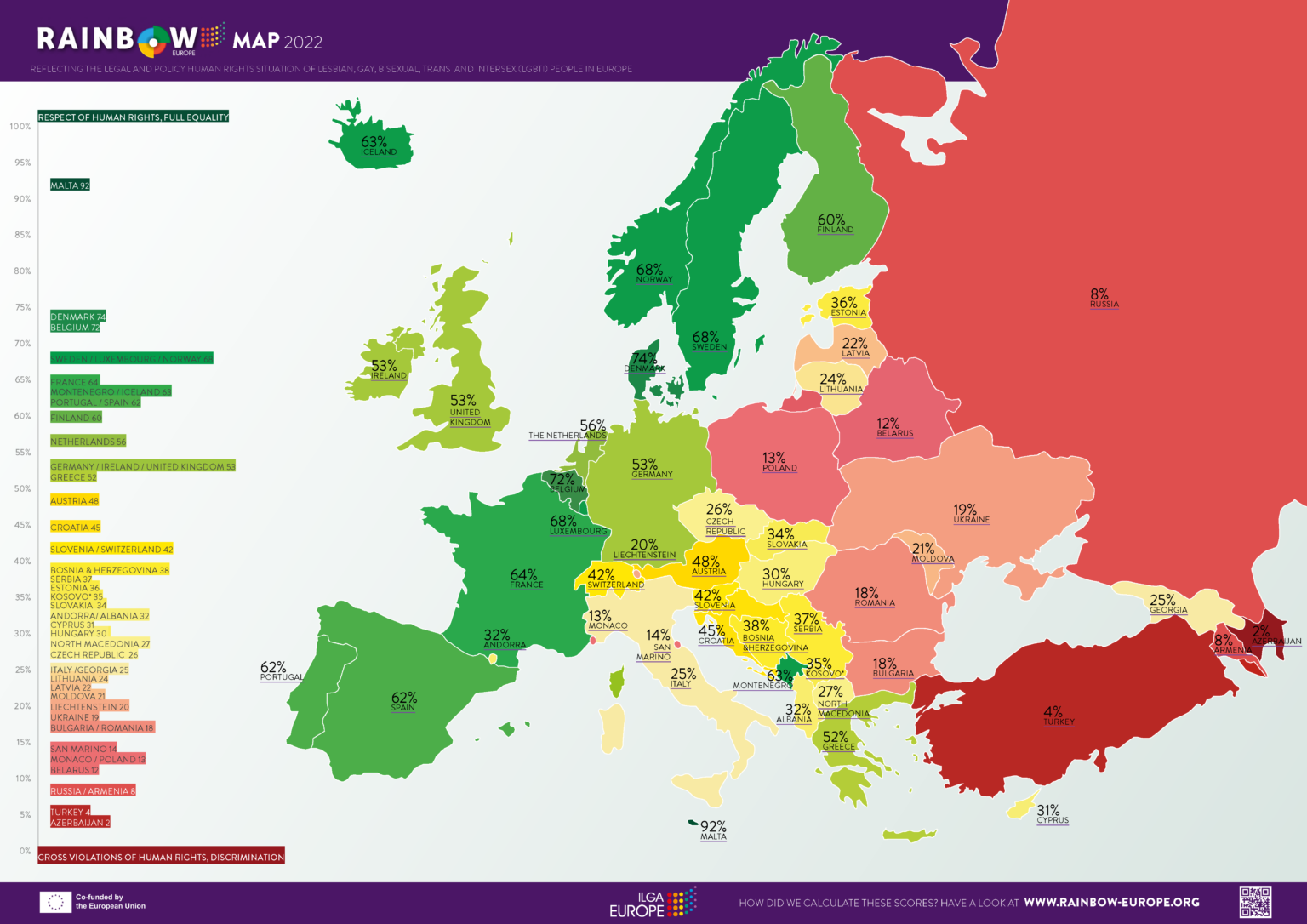
As democracy in Europe comes under growing pressure, the annual ILGA-Europe Rainbow Map identifies steps forward on LGBTI rights in several countries.
Published on Thursday, May 12, 2022 at the IDAHOT+ Forum in Cyprus, ILGA-Europe’s annual Rainbow Europe Map and Index, ranking the legal and policy situation of LGBTI people in 49 European countries, finds that over the past 12 months a new dynamic has appeared to fill in the gaps that exist around LGBTI rights and push standards, giving governments ground to build upon as democracy in Europe faces exceptional challenges.
But it’s not all good news. By contrast, some countries that once were leading lights on LGBTI rights are slipping down the ladder, while others are in danger of following the precedent of countries where LGBTI rights are being instrumentalised for political gain.
Released every May since 2009, marking International Day Against Homophobia, Transphobia, Biphobia, and Intersexphobia (IDAHOBIT), the ILGA-Europe Rainbow Map ranks all 49 European countries on a scale between 0% (gross violations of human rights, discrimination) and 100% (respect of human rights, full equality). This year’s findings are a welcomed contrast to those of the 2021 map, which identified a complete stagnation on LGBTI rights and equality across Europe.
This year we observe positive movement on the Rainbow Map and Index, notably:
- Denmark has jumped seven places to achieve second spot in the 2022 ranking. The reason for Denmark’s jump is that it is taking the lead in filling in anti-discrimination gaps in current legislation, including the equal treatment law, which covers health, education, employment, provision of goods and services, and the penal code to include sexual orientation, gender identity, gender expression and sex characteristics (SOGIESC) as aggravating factors in hate crime.
- More countries are pushing forward for equality by giving due recognition and protection for people’s lived realities. Iceland was awarded points because of its legislative recognition of trans parenthood, among other things, while Germany introduced a ban on intersex genital mutilation and France banned so-called ‘conversion therapy’ based on sexual orientation and gender identity.
- After years of being stalled there is positive legislative movement in Greece, Latvia, Lithuania, Serbia, Slovakia, and Slovenia, countering the narrative that there is an East/West divide on LGBTI rights in Europe, providing governments in these countries with strong opportunities to underpin democracy through adoption and implementation.
According to ILGA-Europe’s Executive Director, Evelyne Paradis: “It is encouraging to see that several governments actively chose to take real action over the past 12 months to progress LGBTI equality, and as a result, that the Rainbow Map looks positively different compared to this time last year. In the face of anti-LGBTI forces which remain rife across Europe, we welcome the renewed mobilisation by a growing number of politicians and government officials to do what is needed to improve the lived realities of LGBTI people. More is definitely needed to strengthen this upward dynamic in the coming year.”
This year, ILGA-Europe is introducing a new category on intersex bodily integrity. With this new headline, we want to send a clear message to governments that protecting the human rights of intersex people requires dedicated efforts and to guide policy-makers on where specific laws and policies are needed. It also allows for better assessment of the work in progress. Germany and Iceland have joined the small number of countries banning non-medically necessary interventions on intersex people without consent, but so far no country, including the leading country Malta, has put in place the necessary implementation and monitoring policies that would allow for fully protection of intersex people’s bodily integrity. Legislative work on banning interventions is ongoing in Austria, Cyprus, Belgium and France.
Unfortunately, it’s not all good news:
- The United Kingdom has suffered a significant drop in ranking, going from 10th to 14th place, losing points as evidence was brought forward this year that the equality body is not, as set out in its mandate, effectively protecting on the grounds of sexual orientation and gender identity. This comes at a time of widespread political and media anti-trans sentiment, while the British government is not moving on long-promised reforms on gender recognition and banning so-called ‘conversion therapy’ for all.
- Amid a rise in official anti-LGBTI sentiment in Bulgaria and Romania, both countries are now not far off the lowest ranking in the EU, which currently belongs to Poland. Romania is losing points due to authorities’ obstruction of freedom of assembly by banning and punishing Pride events. Meanwhile, Hungary moved down three places, mainly because its parliament adopted a number of amendments which directly discriminate against LGBTI people, including a ban on the “portrayal and the promotion of gender identity different from sex at birth, the change of sex and homosexuality” for persons under 18.
- There remain significant gaps in terms of fundamental protection against discrimination and violence in nearly half of the countries. Currently, 20 countries out of 49 still have no protection against hate crime based on sexual orientation, while 28 countries have no protection against violence based on gender identity.
ILGA-Europe’s Advocacy Director, Katrin Hugendubel said: “Despite the new dynamic we’re clearly seeing, the situation remains fragile. A downward spiral of hostile political discourse, legislative stagnation and, in some countries, even withdrawal of LGBTI rights and freedoms is worrying. And while countries like Bulgaria and Romania, for example, have not been in the headlines, they are moving down in ranking, nearer and nearer to Poland, which is at the very bottom in the European Union.”
“The situation in the UK is a sad reminder that when governments don’t stand strong on their commitments to advance minority rights, a powerful opposition can use that space to spread hate and division,” Hugendubel added.
Ukraine
Because of the current situation with war in Ukraine, here is our overview of the situation for the human rights and legislation for LGBTI people in the country, based on our 2022 Rainbow Map and companion publication, our Annual Review of the Human Rights Situation for LGBTI People in Europe and Central Asia (published February 2022).
- Ukraine went up one place in the Rainbow Map ranking because of a removal of restrictions on blood donations for men who have sex with men, which came into effect in June 2021, just over six months before the Russian attack on the country began. ILGA-Europe’s companion to the Rainbow Map, the Annual Review found that prior to the current war, there was cautious optimism from LGBTI activists about the way forward, with a willingness to discuss legislative rights from several politicians. Post-war this should provide Ukraine with a bedrock on which to build a legislative framework that protects all its citizens, and a society that values LGBTI people as part of its democratic composition.
Said Paradis: “LGBTI human rights and equality are a marker of a democratic society where the human rights and freedoms of all citizens are wholly respected and upheld. Recent history has taught us that one of the first steps towards erosion of democracy is the official scapegoating of LGBTI people and undermining of their human rights. This essentially is an act of targeting a vulnerable minority to undermine broader freedom.
“As ILGA-Europe have been warning for years, recent events in Europe prove that we cannot be complacent when the political targeting of minorities is being used by anti-democratic forces. The antidote to complacency is action. It is imperative at this time that we proactively advance equality by creating ever-more robust policies and practices to make sure our societies are truly fair, inclusive and respectful of everyone,” Paradis concluded.
Summary of Rainbow Europe Map 2022
For the seventh year in a row, Malta continues to occupy the number one spot on the Rainbow Europe Map, with a score of 92%.
With 74 points, Denmark now occupies second place – this is a rise of seven places, mainly fuelled by the amendments to its hate crime and equal treatment legislations.
Belgium comes third place with a score of 72%.
The three countries at the other end of the Rainbow Europe scale are Azerbaijan (2%), Turkey (4%), and Armenia (8%), exactly the same as the last two years.
The United Kingdom is the country with the most dramatic drop in its score, losing 11% points in relation to the equality body mandate’s ineffective and non-systematic work on sexual orientation and gender identity and equality action plan not being renewed or implemented.
Portugal has also dropped by 5% points due to the expiration of the government’s action plan.
Denmark, Iceland, France, Greece, and Latvia are the countries with the biggest jump in scores. Iceland amended its children’s law to allow gender-neutral registration for parents, a step that recognises trans parenthood. Iceland also received points in relation to ILGA-Europe’s new category “intersex bodily integrity.”
France passed a ban on conversion therapies, lifted bans on blood donation, and adopted a law on medically assisted insemination. Greece also lifted bans on blood donations and adopted a new equality action plan. Latvia amended its criminal code in a way that the courts applies it to protect sexual orientation as an aggravating factor.
Background
Rainbow Europe – ILGA-Europe’s annual benchmarking tool – comprises the Rainbow Map and Index and national recommendations. ILGA-Europe have produced the Rainbow Map and Index since 2009, using it to illustrate the legal and policy situation of LGBTI people in Europe.
The Rainbow Map and Index ranks 49 European countries on their respective legal and policy practices for LGBTI people, from 0-100%.
In order to create our country ranking, ILGA-Europe examine the laws and policies in 49 countries using a set of criteria. From May 2022, the number of individual criteria used has risen to 74, divided between seven thematic categories: equality and non-discrimination; family; hate crime and hate speech; legal gender recognition; intersex bodily integrity; civil society space; and asylum. More information on the list of criteria and their weight on the total score can be found at www.rainbow-europe.org/about
The 2022 Rainbow Europe also tells the story of an evolving movement. The 14th edition of the Index introduces a brand-new category: “Intersex bodily integrity” and changes in the weight given to different issues it captures. The message is clear: for our movement in Europe, equality and non-discrimination laws, legal gender recognition, bodily integrity, protection from hatred and violence, family rights, and protection of asylum seekers are all interconnected and equally essential for the full enjoyment of human rights for LGBTI people.
| CATEGORY | NEW ALLOCATION OF WEIGHT |
| Equality and non-discrimination | 23% |
| Family | 17.5% |
| Hate crime and hate speech | 19% |
| Legal gender recognition | 17.5% |
| Intersex bodily integrity | 5% |
| Civil society space | 9% |
| Asylum | 9% |
Alterations to our criteria make year-on-year comparisons difficult, but certain lessons are clear – countries that are expanding their legislative horizons are moving up in the ranking.
Policymakers, researchers and journalists are able to go ‘behind’ the points and see the original information sources that we base our Map and Index ranking on. This additional layer of information is available through our updated Rainbow Europe web module, www.rainbow-europe.org.
The Rainbow Map and Index presents a picture of what the policy landscape is like currently, while our country-specific recommendations attempt to answer the question “what’s next?” These recommendations are intended to encourage policymakers to address the most pressing legal and policy priorities within the framework of our Rainbow Map and Index. The recommendations were gathered following an online consultation with a wide range of LGBTI organisations in the various countries. As a result, the recommendations are tailored to the needs of activists working on the ground.
Further information:
- The annual IDAHOT+ Forum aims to strengthen cooperation and understanding on LGBTI+ politics between European Governments, International Governmental Organisations, International Civil Society Organisations, Businesses, Academics, and key stakeholders. Find out more about it here.
- Read more on Rainbow Europe Map & Index webpage
- Navigate the Rainbow Europe module here.
- Find the Country Ranking here.
For further comment, contact: Ana Muñoz Padrós, ILGA-Europe: ana@ilga-europe.org
Behind the smokescreen of anti-LGBTI rhetoric in Europe, there’s a groundswell of allied determination to tackle hatred, report finds
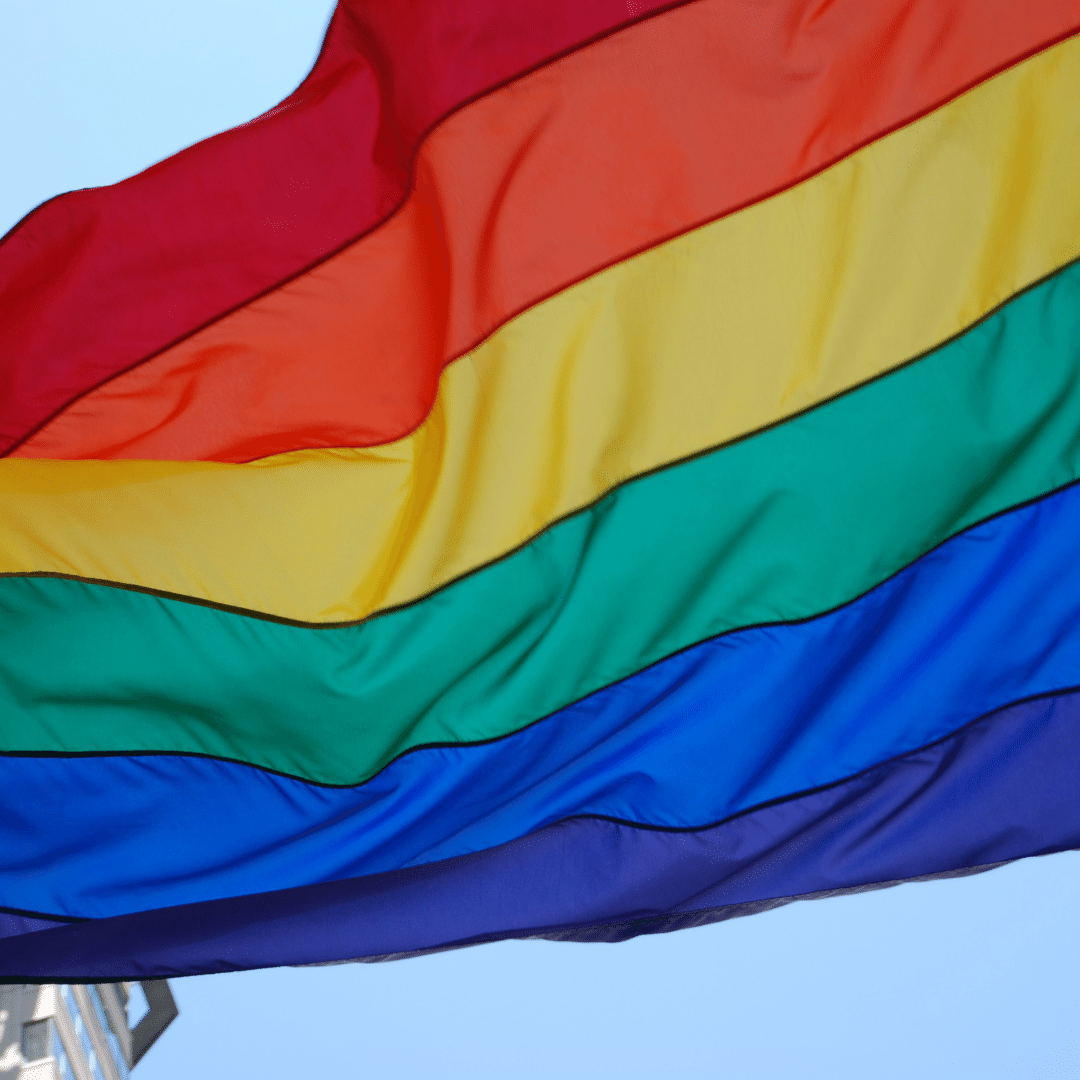
A report from the leading LGBTI organisation in Europe finds that amid a rise in official anti-LGBTI rhetoric fueling a wave of hate crime in every country in Europe, there is a growing institutional resolve to tackle hatred and exclusion.
Published today, February 15, 2022, ILGA-Europe’s Annual Review of the Human Rights Situation of LGBTI people in Europe and Central Asia finds that while there was a staggering rise in 2021 of anti-LGBTI rhetoric from politicians and other leaders, fuelling a wave of violence, with anti-LGBTI hate crime reported in every country, the response to this has been an allied determination in many countries, and at the European level, to tackle hatred and exclusion of LGBTI people.
Politicians in countries across Europe, not just in the usually reported Hungary and Poland, have continued to demonise LGBTI people over the past year, leading to a stark rise in anti-LGBTI attacks, burning of rainbow flags, and targeting of young LGBTI people in particular. A particular low point of the year came on June 15, with Hungary’s introduction of legislation which introduced a ban on the “portrayal and the promotion of gender identity different from sex at birth, the change of sex and homosexuality” for persons under 18.
Reported violence against LGBTI people in this context across Europe was rife. Germany, for instance, had a 39% increase in anti-LGBTI hate crime, while a new app in France, where users can report anti-LGBTI hate crimes, collected reports of 3,896 incidents in its first year. In the second year of the COVID-19 pandemic, domestic violence against LGBTI family members continued to take place widely. There were murders, assaults, corrective rapes, and anti-LGBTI police brutality. In many countries where police brutality took place, the police were not held accountable.
Anti-gender and anti-trans rhetoric have remained widespread, often targeting youth in particular. The narrative pitching trans rights against women’s rights also continued apace this year, and in this context there was stagnation in legal gender recognition (LGR) reform in many countries.
According to Executive Director of ILGA-Europe, Evelyne Paradis: “The spread of anti-LGBTI and trans exclusionary rhetoric outlined in this report has a very real negative impact on people’s lives. In country after country, we see how it negatively impacts people’s mental health and their sense of safety, their access to employment and the overall ability to progress much needed legal protection. At this moment in time, it is essential we remind politicians, media, academics – and sadly even some civil society actors – that real people’s lives are at stake in every country across the region, because of the political scapegoating of LGBTI people.”
In the context of this political scapegoating, national human rights institutions (NHRIs) and courts in many countries have begun to strengthen their work to protect the rights of LGBTI people. The European Court of Human Rights delivered several positive judgments this year, on hate crimes, freedom of assembly, LGR and family rights.
By far the strongest commitment to LGBTI human rights from European Union level came when the European Commission (EC) in July opened landmark infringement procedures against both Hungary and Poland. The European Parliament also adopted its resolution on LGBTIQ rights in the EU, strongly supporting the EC’s objective to propose legislation in several areas of protecting LGBTI rights, and condemning where member states have not been respecting EU law as regards LGBTI rights.
Said Katrin Hugendubel, Advocacy Director at ILGA-Europe, “This report narrates an unparalleled year in Europe, with regional and national institutions and courts taking their obligations to the human rights of LGBTI people with utmost gravity amid the now crystal clear escalation of the instrumentalisation of hatred against LGBTI people for political gain and expanded power. The advance of using hatred of any minority as an instrument of political gain, which we have seen throughout history, must be addressed and halted with allied determination across the region.”
It is also clear from this report that state-sponsored anti-LGBTI rhetoric and legislation is not matched by public opinion. Support for LGBTI people has never been stronger. In Hungary, for instance, a representative poll commissioned by Amnesty International Hungary and Háttér Society and conducted by polling agency Medián between 13 and 19 July 2021, found that 73% of Hungarians reject the government’s false claim that gay and lesbian people abuse or harm children.
A clear majority of Hungarian society (74,5%) believe that transgender people should be able to change their gender and name in their official document, while 59% support same-sex marriage. Hardly any Serbians know trans people, but 60% think they should be protected from discrimination. 68% of Romanians think all families, including rainbow families, should be protected, while 40% of Bulgarians would support a party that is pro-LGBTI.
According to Soudeh Rad, co-chair of the ILGA-Europe board: “While these numbers and outcomes of similar polls are promising as heartwarming illustrations of the strength and impact of the work carried out by civil society and the LGBTI movement at global, regional, and local levels, we must not forget the struggles activists across Europe and Central Asia face in realising a world where everyone can enjoy their human right to fully be themselves.”
Check out our Annual Review 2022.
Navigate the Annual Review chapters by country, institution or theme at our Rainbow Europe module!
For further comment, please contact ILGA-Europe’s Communications and Media Officer Ana Muñoz Padrós at ana@ilga-europe.org or +32 493356055.
Rising challenges for LGBTI organisations in Europe and Central Asia, new report finds
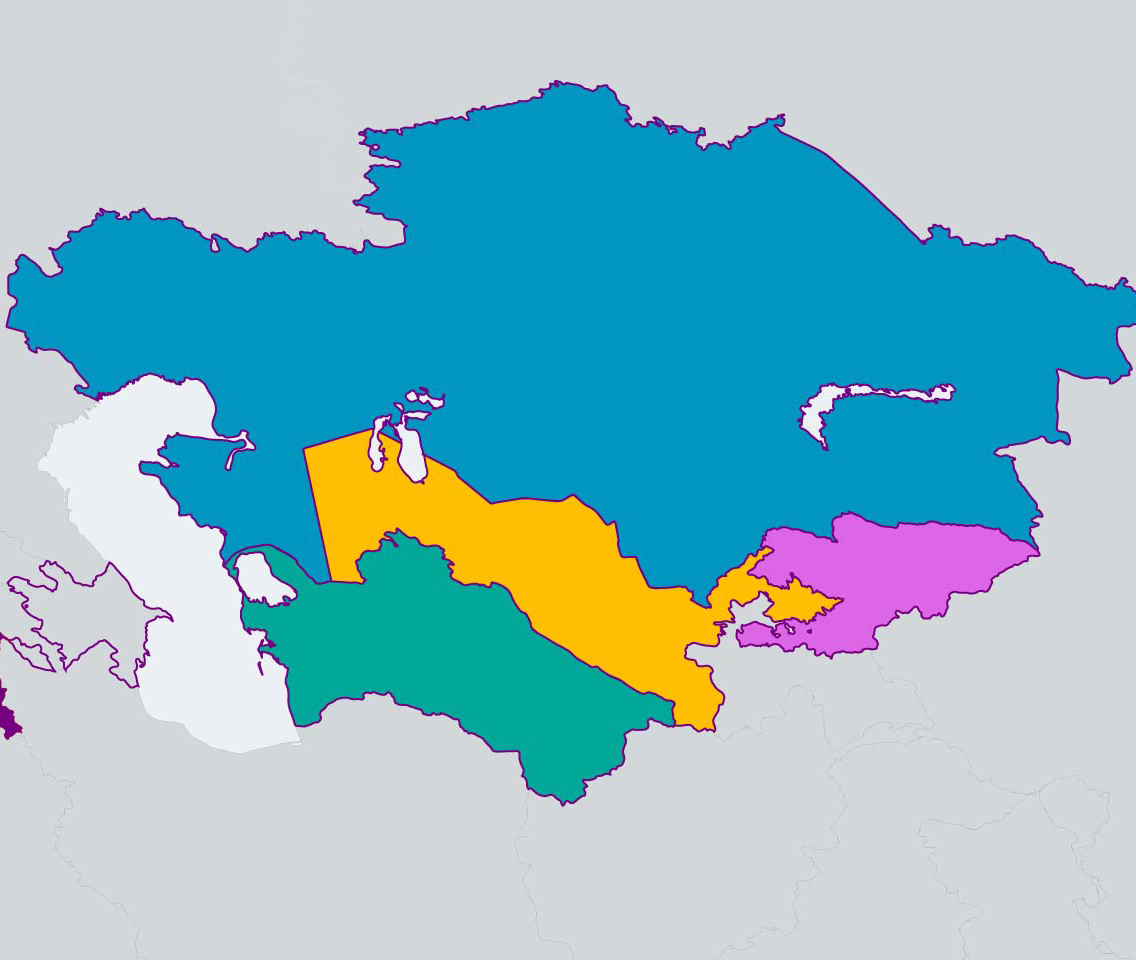
A survey of LGBTI organisations across Europe and Central Asia finds they face significant challenges in the face of growing anti-LGBTI forces, and the ongoing COVID-19 crisis.
A report launched today by Europe’s leading LGBTI organisation, ILGA-Europe indicates that LGBTI activists are struggling to resource their work amid a number of challenging factors.
The report, entitled, “Funding To Meet Changing Realities – LGBTI Organisations on the State of Funding in Europe and Central Asia, Survey 2021”, based on survey responses from 300 LGBTI organisations across Europe and Central Asia finds that:
- About one third of LGBTI organisations operate on yearly budgets under 20,000 Euro, whilst engaging in a wide variety of activities to simultaneously serve their communities and advance laws and policies to protect LGBTI people’s human rights
- Amidst the COVID-19 pandemic, organisations across the region stepped up to fill the gaps by providing services to LGBTI people that should have been provided by public authorities
- Every second LGBTI organisation in the region experiences stress and burnout due to not being able to meet the needs of LGBTI people coming in for help
Overall, 84.9% of organisations say that they have been faced with burnout issues. The most common cause of stress and burnout across was not being able to meet the needs of LGBTI people coming in for help (49.7%), responding to COVID-19 (46.1%) and having to respond to external threats from right wing, anti-LGBTI or “anti-gender” groups or individuals (43.6%).
The report further assesses challenges that LGBTI organisations face and maps the diversity of work done and communities served by organisations. About three-quarters of LGBTI organisations identified a lack of funding for the activities that are most important to their organisation as a barrier to implementing projects. They often do the most important work for them without funding, or without dedicated funding.
The report also indicates that the despite mounting workloads, burnout and growing threats and attacks, LGBTI organisations continue to widen their work, focusing on a variety of highly vulnerable groups within the LGBTI community, such as migrants, young people, and trans and gender and non-conforming people, and are in dire need of additional resources to ensure that they can strengthen these efforts.
Amongst the good news is that LGBTI organisations across the regions have grown the proportion of their own resources to support their work, for instance by getting more donations from companies and private donors.
Launching the report, ILGA-Europe Programmes, Director Björn van Roozendaal said: “Behind the rich data contained in this report there is a powerful story of LGBTI activists who amidst growing opposition, rising oppression and an unfolding pandemic have continued to stand up for their communities, reached out to those who are most affected and continued to undertake new work and build partnerships to meet today’s challenges. But resources continue to be scarce. The stark findings of this report should be a call to action to anyone who can and wants to support or step-up their commitment to support LGBTI organisations.”
Further information:
The report Funding To Meet Changing Realities – LGBTI Organisations on the State of Funding in Europe and Central Asia, Survey 2021 is written by Erin Howe and Somjen Frazer from Strength in Numbers Consulting Group for ILGA-Europe. It is based on a survey to which nearly 300 LGBTI organisations responded, as well as interviews with 21 activists.
For further comment, contact: Ana Muñoz Padrós, ILGA-Europe: ana@ilga-europe.org, +32 493 35 60 55
Top EU Court Recognises Relationship of Same-sex Parents and their Children Under EU Law
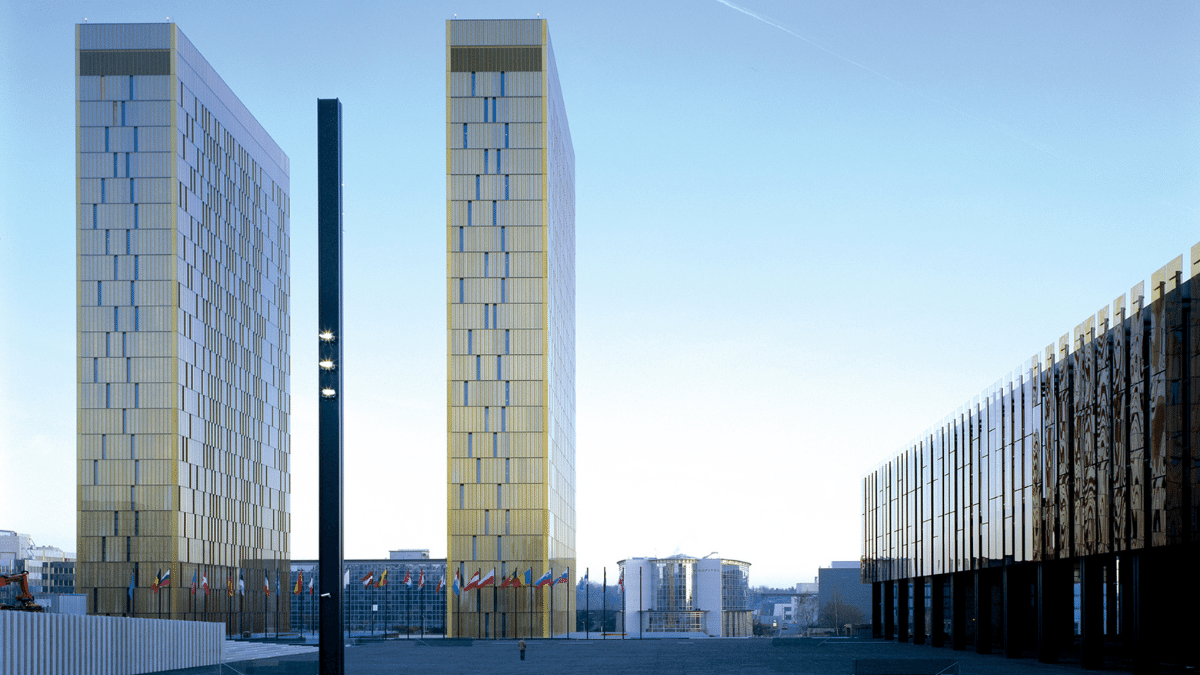
In a landmark judgement, the Court of Justice of the European Union has ruled that a child and its same-sex parents must be recognised as a family, the child should be issued a Bulgarian passport, and the family should have free movement in all Member States of the European Union.
Today, December 14, the Court of Justice of the European Union (CJEU) ruled that if one EU member state recognises a parental relationship between a child and its parents, then all member states should, in order to give the child it’s right to freedom of movement.
The case ‘Stolichna obshtina, rayon Pancharevo’ arose when a same sex couple were refused a birth certificate in Bulgaria for their infant daughter, who was born in Spain. The Bulgarian authorities asserted that the couple, one of whom is Bulgarian, could not be registered as parents on the child’s birth certificate, leaving the family in legal limbo.
Bulgarian born Kalina Ivanova* and Gibraltar-born Jane Jones* are the mothers of Sara, who was born in Spain in 2019. Under current Spanish law, the child could not acquire Spanish citizenship because neither Kalina or Jane is a Spanish citizen. The child was also denied British citizenship because Jane was born in Gibraltar of British descent, and under the British Nationality Act (1981), cannot transfer citizenship to her daughter.
Therefore, Kalina requested Bulgarian citizenship for their daughter. Bulgarian authorities rejected a request for citizenship of the child, the application, arguing that a child cannot have two mothers, and refused to issue a birth certificate in which the parents are two persons of the same sex.
Sara was therefore deprived of Bulgarian, and therefore European citizenship, and was at risk of statelessness. Currently, the child has no personal documents and cannot leave Spain, the country of the family’s habitual residence. The lack of documents restricts Sara’s access to education, healthcare, and social security in Spain.
In Bulgaria, same-sex marriages and same-sex registered partnerships are not recognised.
Today the CJEU ruled that it is contrary to the fundamental rights guaranteed by Articles 7 and 24 of the Charter for the child to be deprived of the relationship with one of her parents when exercising her right of free movement or for her exercise of that right to be made impossible or excessively difficult on the ground that her parents are of the same sex.
The ruling asserts that the Bulgarian authorities are obliged to issue an identity card or a passport to Baby Sara, which all other EU Member States are obliged to recognise.
Welcoming the ruling, Baby Sara’s parents said: “We are thrilled about the decision and cannot wait to get Sara her documentation and finally be able to see our families after more than two years. It is important for us to be a family, not only in Spain but in any country in Europe and finally it might happen. This is a long-awaited step ahead for us but also a huge step for all LGBT families in Bulgaria and Europe.
“Thank you so much to the LGBT Deystvie organisation in Bulgaria and especially to our legal representation, Denitsa Ivanova and Veneta Limberova for fighting for our family and countless others in our position. Thanks too all the people and organisations who supported us in this process: ILGA-Europe, NELFA, ACCEPT Romania and many others.”
According to Arpi Avetisyan, Head of Litigation at Europe’s leading LGBTI rights organisation, ILGA-Europe, which intervened in the case: “We are very pleased with CJEU’s judgment this morning. It gave legal endorsement to the EC President Ursula von der Leyen DL’s words, delivered during last year’s State of the Union address: ‘If you are a parent in one country, you are parent in every country’. The judgment has brought long-awaited clarification that parenthood established in one EU Member State cannot be discarded by another, under the pretence of protecting the “national identity”. This is a true testament to the EU being a union of equality and we look forward to seeing rainbow families enjoying their right to freedom of movement and other fundamental rights on equal footing to anyone else. It is important that the judgment is implemented imminently, not only for baby Sara and her family, but also for other families facing similar struggles across the EU.”
*Names have been changed.
For comment, contact Ana Muñoz media officer at ana@ilga-europe.org and +32493356055
EU Holds Firm in Face of Hungary’s Blatant Lies Surrounding Anti-LGBTI Law
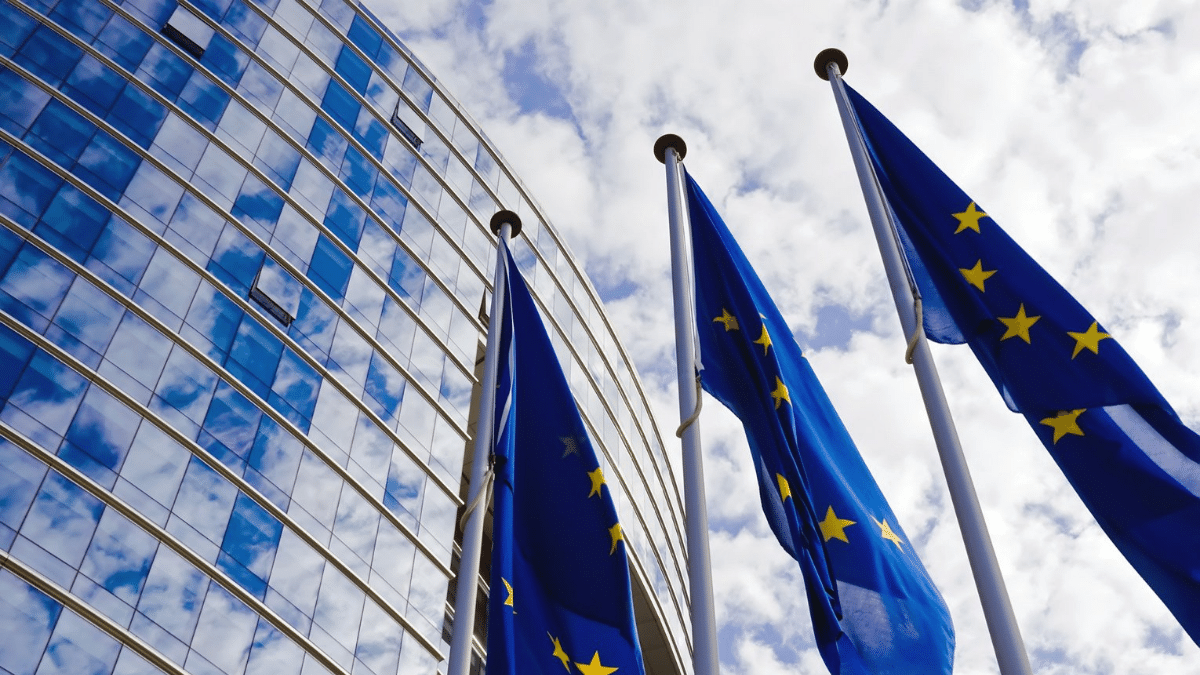
As the European Commission takes the second step in its infringement procedure against Hungary, Europe’s leading LGBTI organisation welcomes its clarified commitment to the equal human rights of the people of Hungary and all other EU member states.
Today, 2 December 2021, the European Commission (EC) began the second phase of its infringement procedure against EU member state, Hungary, due to discriminatory amendments adopted on 23 June in the country, which ban the “portrayal and the promotion of gender identity different from sex at birth, the change of sex and homosexuality”.
On 15 July 2021, the European Commission formally notified Hungary of the beginning of infringement proceedings regarding the amendments. The Hungarian Prime Minister, Viktor Orbán responded by accusing the Commission of “legalised hooliganism” and announcing plans to call a referendum on the amendments, falsely insisting that the infringement procedures specifically seek to interfere in the Hungarian education system. Since then a number of Hungarian government officials have similarly sought to mislead the Hungarian and European public in regard to the content of the infringement procedures.
Today the Commission said that it finds Hungary’s official response to its notification insufficient, and it has therefore started the second phase of the infringement process by sending Hungary a letter known as a “reasoned opinion”, outlining the parts of the new Hungarian law that are breaching EU law, and demanding that these are changed. The EC also identified that even more EU laws are being breached by the amendment, and contrary to claims from the Hungarian government, it did not mention any educational directives in its reasoned opinion.
Instead it clarified that it is specifically concerned with breaches to fundamental EU law when it comes to the freedom to provide services and the free movement of goods. Hungary, the Commission says, has not shown how restrictions in its legislative amendments are duly justified, non-discriminatory, and proportionate.
In addition, the EU clarified breaches of the Audiovisual Media Services Directive and the e-commerce Directive, citing restrictions in the amendments regarding audiovisual media content, including discrimination based on sexual orientation.
The Commission also deems that the Hungarian amendments violate human dignity, freedom of expression and information, the right to respect of private life as well as the right to non-discrimination as enshrined in Articles 1, 7, 11 and 21 of the EU Charter of Fundamental Rights, and due to all of this, the amendments violate Article 2 of the Treaties of the European Union.
According to Katrin Hugendubel, Advocacy Director with Europe’s leading LGBTI organisation, ILGA-Europe: “The Hungarian government keeps twisting the facts and stating that it is protecting children and acting on the will of its people with these amendments. Both statements are patently false. The amendments are an attack on children’s rights as well as the rights of LGBTI people. Contrary to the amendments reflecting the will of the people, support for LGBTI equality is growing in Hungary.
“With these amendments and his referendum, Orbán is running a campaign in advance of elections next year, hoping to distract from the massive problems his government is responsible for by scapegoating the LGBTI community. The EC is right to hold the Hungarian government accountable to the Treaties, and should not hesitate to see this through, including by bringing Hungary in front of the Court of Justice of the European Union (CJEU).”
Hungary now has two months to remedy the breaches identified by the Commission. If they do not amend the law to remove the breaching anti-LGBTI provisions, then the Commission will refer the case to the CJEU.
For further comment, contact: Ana Muñoz Padrós, ILGA-Europe: ana@ilga-europe.org, +32 493 35 60 55
Turkey acquits 19 LGBTI+ Pride marchers, honouring fundamental human rights, domestic law, and international commitments
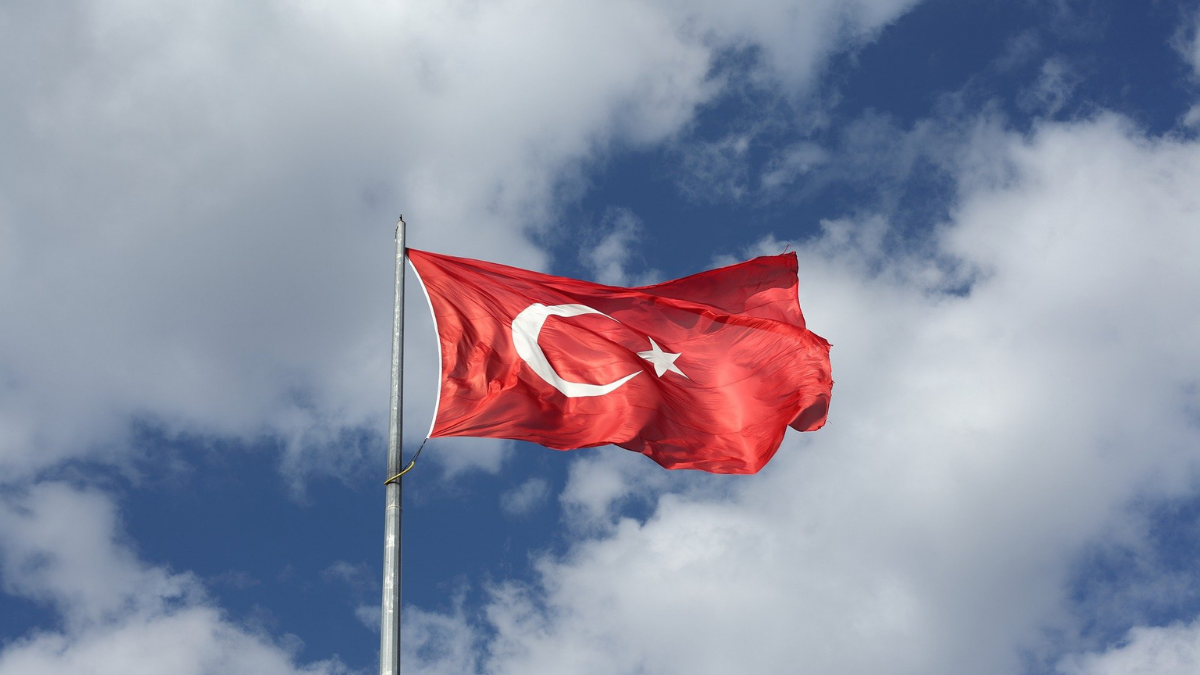
Leading European LGBTI rights organisation, ILGA-Europe welcomes the decision of a Turkish court to acquit 19 activists, who were charged with “unlawful assembly” for their participation in a peaceful LGBTI+ Pride march in 2019.
Today 18 students and one academic who were detained, charged and prosecuted for their participation in a peaceful LGBTI+ Pride march at Turkey’s Middle East Technical University (METU) in the city of Ankara on 10 May 2019 were acquitted, having faced charges of “participating in an unlawful assembly” and “failing to disperse despite being warned” and up to three years in prison.
In 2017, Ankara banned all LGBTI+ activities under a state of emergency, but this ban had been lifted in February 2019. Therefore, there was no legal basis for METU’s administration to ban the march in May 2019. Activists and students exercised their legal right to freedom of assembly, celebrating Pride, however, at the university’s behest, police intervened and used excessive force to disperse the march, detaining 22 participants, of which 19 were charged.
Today the judge at Ankara’s 39th Penal Court of First Instance found the activists not guilty due to the absence of any element of a crime, and confirmed that Pride is not a crime. The official reasoning for his decision will be published in November.
According to Katrin Hugendubel, Advocacy Director at ILGA-Europe: “We are very relieved to hear of the acquittal of the METU Pride LGBTI+ activists. It is very important for LGBTI+ people in Turkey, but also across the region, to see that, in a context of rising hate-speech against LGBTI+ people by political and religious leaders, the courts and judicial processes protect the rights of all people to freedom of assembly, as enshrined in Turkish law and the European Convention on Human Rights, to which Turkey is party, and thus uphold the rule of law.”
According to Özgür Gür, from the Turkish NGO, ÜniKuir, who was one of the activists facing judgement in the trial: “We would like to point out that from the very beginning, there should have been no trial at all, and now, with this precedent, we will continue to raise the LGBTI+ struggle. We thank everyone for their support.”
Further information:
Read our joint statement with 8 international human rights organisations in English and Turkish here.
For further comment, contact: Ana Muñoz Padrós, ILGA-Europe: ana@ilga-europe.org, +32 493 35 60 55
With today’s infringements the EU has clarified that member states can no longer act against human rights with impunity
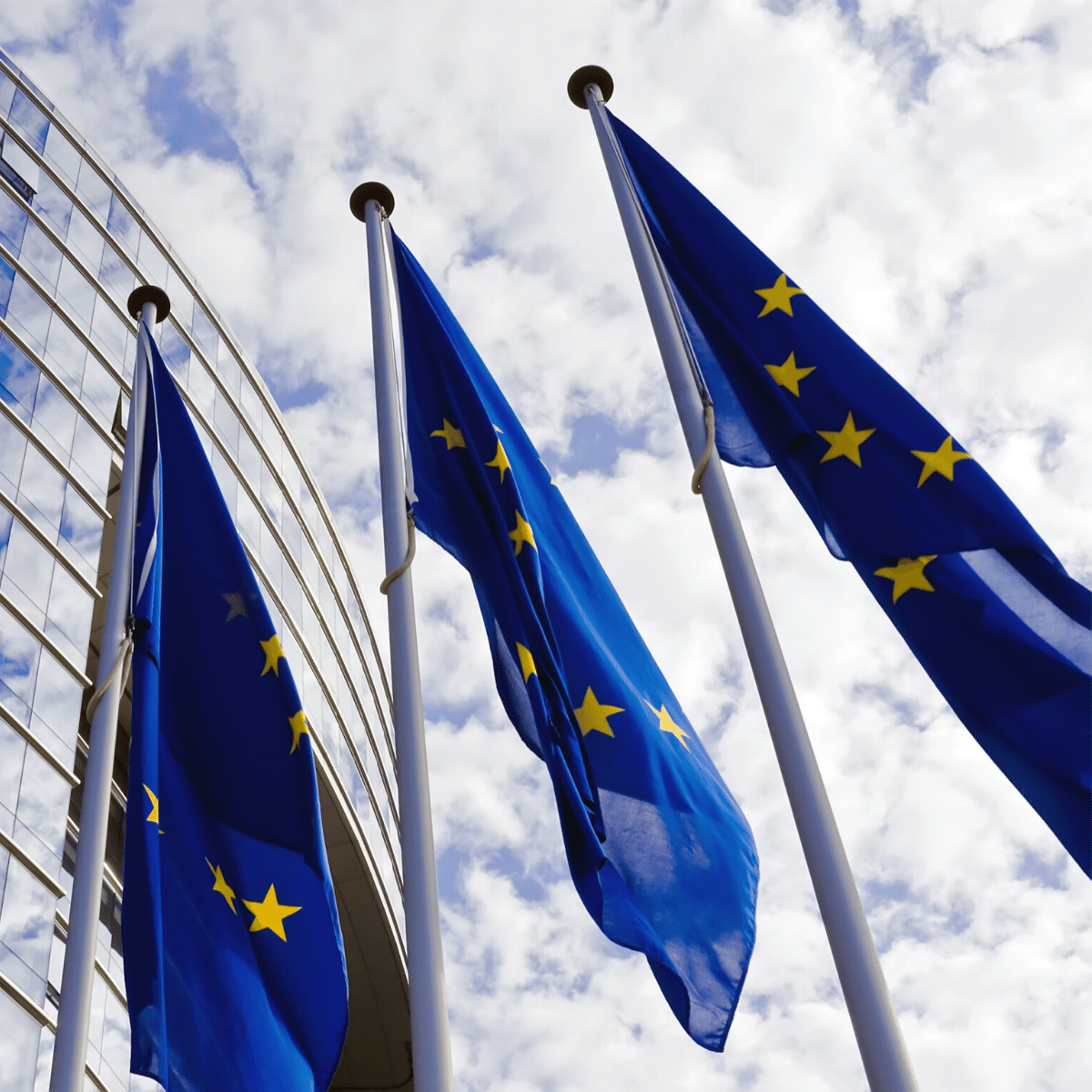
According to ILGA-Europe, the infringement procedures announced by the European Commission today show that the EU has come to a tipping point; after years of governments testing how far they can go, the European Commission has taken a clear step to hold Hungary and Poland accountable on the rule of law and fundamental rights.
Today, July 15, the European Commission announced that it will take landmark infringement procedures against both Hungary and Poland. The procedures against Hungary concern the censorship of a children’s book portraying LGBTI characters, and the legislation that entered into force last week, which prohibits the inclusion of LGBTI people in material in schools or in media for under-18s. The procedures against Poland concern a refusal to clarify whether LGBTI people are discriminated against in the labour market in the country’s so-called LGBT Free Zones .
According to ILGA-Europe, the leading LGBTI rights organisation in Europe, the infringements are a clear message to all member states that they are bound by their membership to respect the core principles of the European Union.
The first infringement against Hungary is in respect of a book of reimagined fairytales with diverse characters entitled, Wonderland is for Everyone, which was published in September 2020. The book became an immediate target of homophobic attacks by politicians in the ruling Fidesz party, including the Hungarian Prime Minister Viktor Orbán, calling it “homosexual propaganda”. In January, the Hungarian government ordered the publisher of Wonderland is for Everyone to print disclaimers identifying books containing “behaviour inconsistent with traditional gender roles”, thus restricting the right to freedom of expression and the right to non-discrimination as enshrined in Articles 11 and 21 of the EU Charter of Fundamental Rights and breaches the Unfair Commercial Practices Directive.
The second Hungarian infringement is in relation to legislative amendments voted in on June 15, banning the “portrayal and the promotion of gender identity different from sex at birth, the change of sex and homosexuality” for persons under 18 and for public servcie advertisement even without any age limit. The language surrounding this ban has been introduced into the following Hungarian legislation: the Child Protection Act, the Family Protection Act, the Act on Business Advertising Activity, the Media Act, and the Public Education Act, clearly breaching a number of EU laws and violate international human rights norms, in particular restricting cross-border information society services, and the Treaty principles of the freedom to provide services (Article 56 TFEU) and the free movement of goods (Article 34 TFEU), by failing to demonstrate that the restrictions are necessary, non-discriminatory, and proportionate and pursue a legitimate interest.
On the day the Hungarian legislation came into force, the European Parliament voted in favour of urgent legal action against its member state, saying that the law was “another intentional and premeditated example of the gradual dismantling of fundamental rights” in the country.
The infringement against Poland has been launched because of the non-cooperation of Polish authorities in clarifying the question in how far the so-called Family Charters and LGBT Free Zones, which over 100 Polish local governments have adopted since 2019, might lead to discriminationon the grounds of sexual orientation and the Charter of Fundamental Rights, specifically ensuring non-discrimination in access to and in the labour market in line with EU anti-discrimination law, and also regarding management of the Structural and Investment Funds.
According to ILGA-Europe’s Advocacy Director, Katrin Hugendubel: “By opening infringement procedures, the EC clearly states that the Polish and Hungarian governments are violating fundamental rights and, as they are unwilling to engage in sincere cooperation, and is now stepping up and opening a clear procedure to ensure the full respect of the Treaties and EU legislation. This could ultimately result in the EC bringing both countries in front of the Court of Justice of the European Union (CJEU).”
Over the past two years, ILGA-Europe has been advocating at the highest EU levels for sanctions against Poland and Hungary, as the governments of both countries have increasingly stoked anti-LGBTI hatred, thereby sewing political and societal division. ILGA-Europe stated concerns that this instrumentalisation of a vulnerable minority, which was first employed by Vladimir Putin in 2013 with the Russian anti-propaganda law, was providing an example to the governments of other EU member states leaning in this direction, who saw Poland and Hungary acting with impunity in violation of EU directives and core values.
Executive Director of ILGA-Europe, Evelyne Paradis said: “For years now, we have been observing some EU member states consistently testing EU democracy and the protection of the rule of law and fundamental rights. The infringement procedures announced today send a clear signal that enough is enough. EU member states can no longer act against human rights with impunity, nor can governments go on instrumentalising minorities for political gains. They have to and will be held accountable.”
Background to infringement on Poland:
In September 2020, ILGA-Europe together with Polish LGBT rights organisations KPH (Campaign Against Homophobia) and Fundacja Równo?ci (The Equality Foundation) submitted a legal complaint to the European Commission setting out how these declarations introduce discrimination against LGBTI people and thus breach the European Council Directive (2000/78/EC), establishing a general framework for equal treatment in employment and occupation, as well as the Charter of Fundamental Rights Article 15 on Freedom to choose an occupation and right to engage in work, and Article 21 on non-discrimination. Based on the complaint, the EC has requested information from the Polish authorities in February this year, which to this day has not been provided, thereby constituting failure to comply with the principle of sincere cooperation under Article 4(3) TEU.
Further information:
- Read more about Hungary in our Rainbow Map and Annual Review.
- Read more about Poland in our Rainbow Map and Annual Review.
For further comment, contact Ana Muñoz, ILGA-Europe: ana@ilga-europe.org and +32 493 35 60 55
LGBTI organisations welcome European Court judgement in favour of trans parental rights in Russia
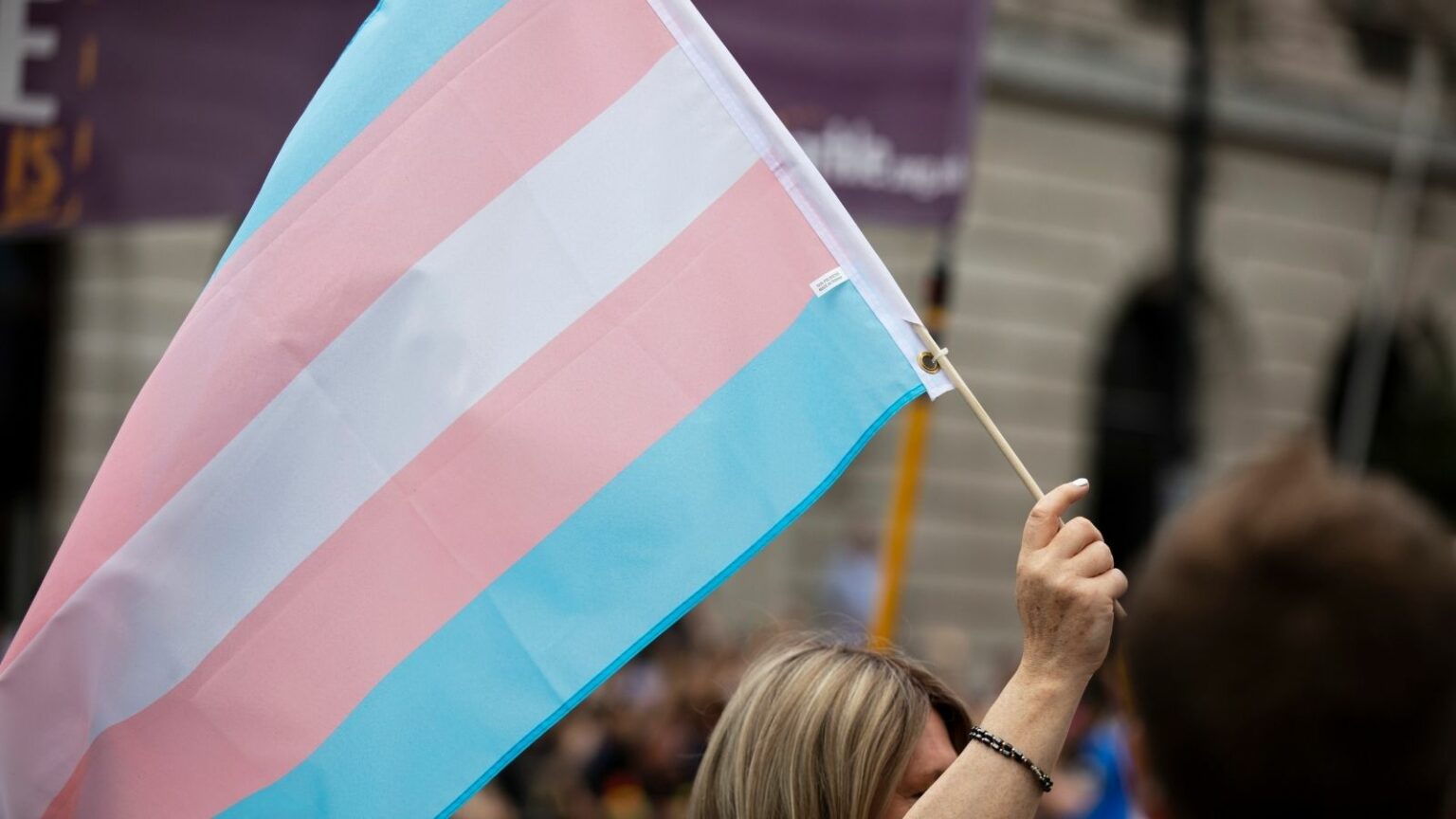
Today, in a landmark judgement strongly welcomed by TGEU and ILGA-Europe, the European Court of Human Rights has ruled in favour of a woman in Russia who was denied access to her children because of her gender identity and transition.
Today, in the case of A.M. and Others v. Russia, the European Court of Human Rights unanimously found a violation of Article 8 (right to private and family life) and Article 14 (prohibition of discrimination).
The case concerns a trans woman from Moscow who was prevented from having contact with her children because of her gender identity and transition. The Court found that the domestic courts did not sufficiently take into account the best interest of the child when restricting the applicant’s parental rights, and observed that, contrary to the established practice, they failed to conduct a comprehensive assessment and scrutiny to evaluate a potential danger to the children’s wellbeing.
The Russian courts argued that the decision to restrict the applicant’s parental rights was necessary, as contact with the trans parent would have a “negative impact on the mental health and psychological development” of her children. The European Court however noted that the domestic courts failed to demonstrate that the restriction was justified and well-substantiated.
Reacting to the judgement, Executive Director of TGEU, Masen Davis said: “The kids are alright – there is nothing wrong with being a trans parent! Today, we celebrate this important message together with all trans families. Every fourth trans person in Europe is a parent. Today’s judgement gives legal security to many of them. We congratulate the applicant for having gone all the way to Strasbourg to defend her right to be the best possible parent to her children.”
Evelyne Paradis, Executive Director of ILGA-Europe added: “Too often we are hearing the best interest of the child being abused as an argument to limit the rights of LGBTI people. We are glad to see the Court clearly rejecting such an abusive argument, and instead naming very concrete responsibilities for state authorities in ensuring the best interest of the child. Spreading hatred, misinformation and splitting loving parents from their children is not in the best interest of children.”
This is the first time the European Court of Human Rights has found a violation of the prohibition of discrimination (Article 14) because of a person’s gender identity. Notably, the Court found that the applicant had been discriminated based on her gender identity in comparison to other cis parents, saying: “[the] applicant has… been treated differently from other parents who also seek contact with their estranged children, but whose gender identity matches their sex assigned at birth.”
The Court awarded the applicant €9,800, even though she had not asked for pecuniary compensation. The Court held that “such damage cannot be compensated for solely by the finding of a violation.”
TGEU and ILGA-Europe had submitted written comments to the case, which the Court took into consideration in its analysis. The comments presented information dispelling myths about trans parenthood, international developments recognising increased rights recognition and requirements for a “best interests of the child” standard.
“We call upon the Russian authorities to respect today’s decision and immediately end the discrimination of trans families,” Evelyne Paradis concluded.
Further information:
- Read more about Russia in our Rainbow Map and Annual Review.
For further comment, contact: Ana Muñoz Padrós, ILGA-Europe: ana@ilga-europe.org, +32 493 35 60 55